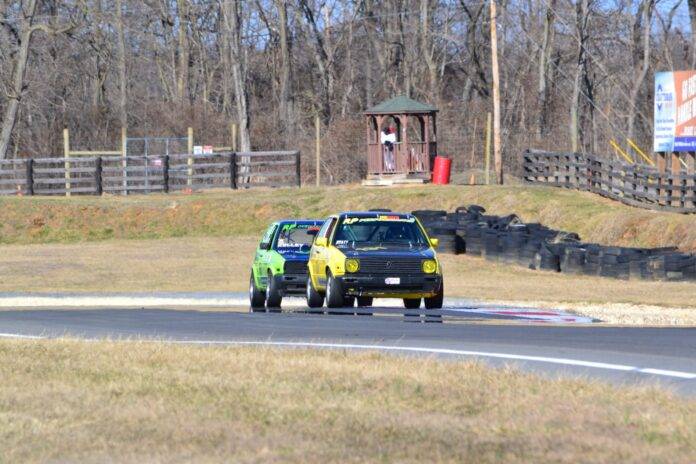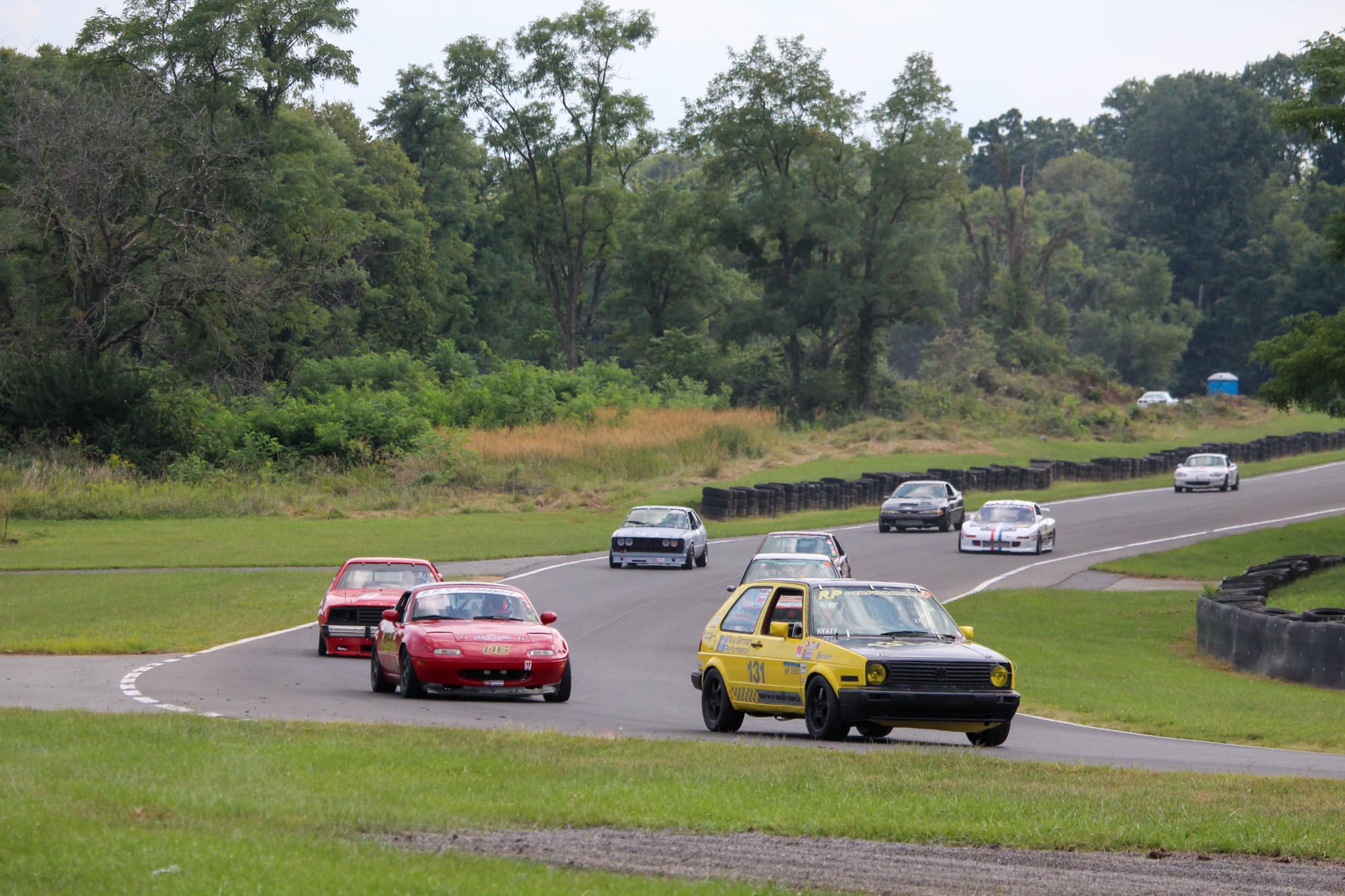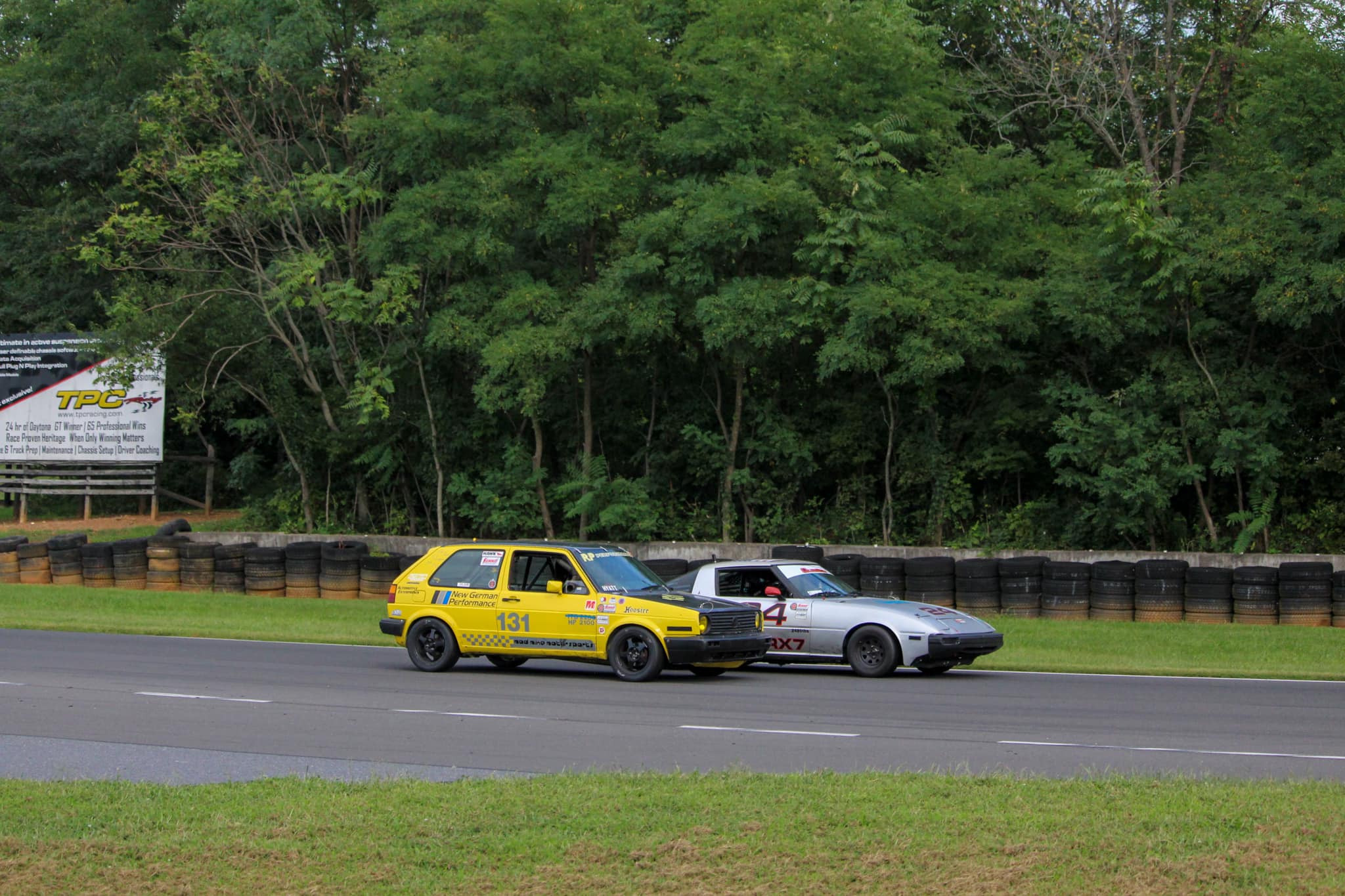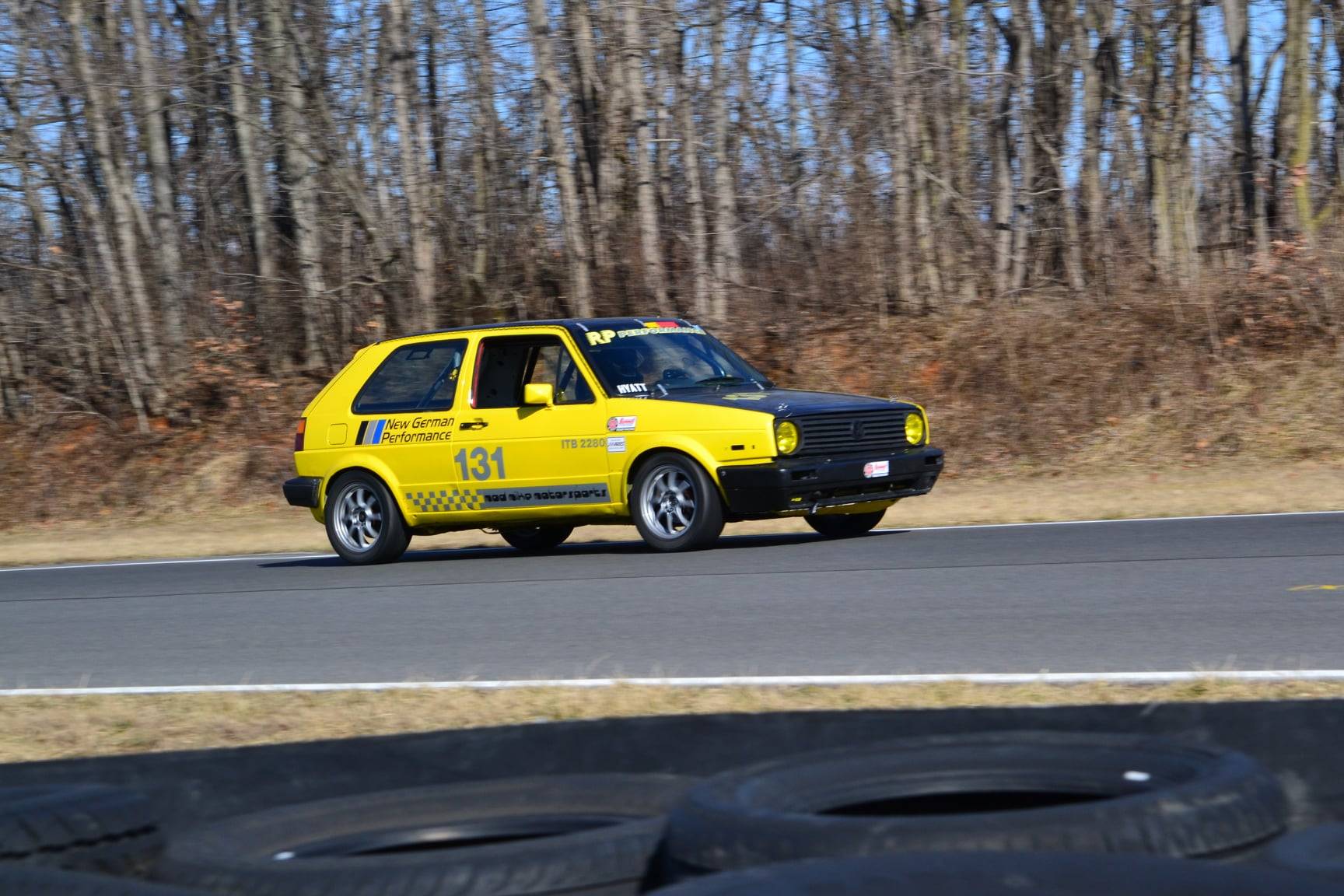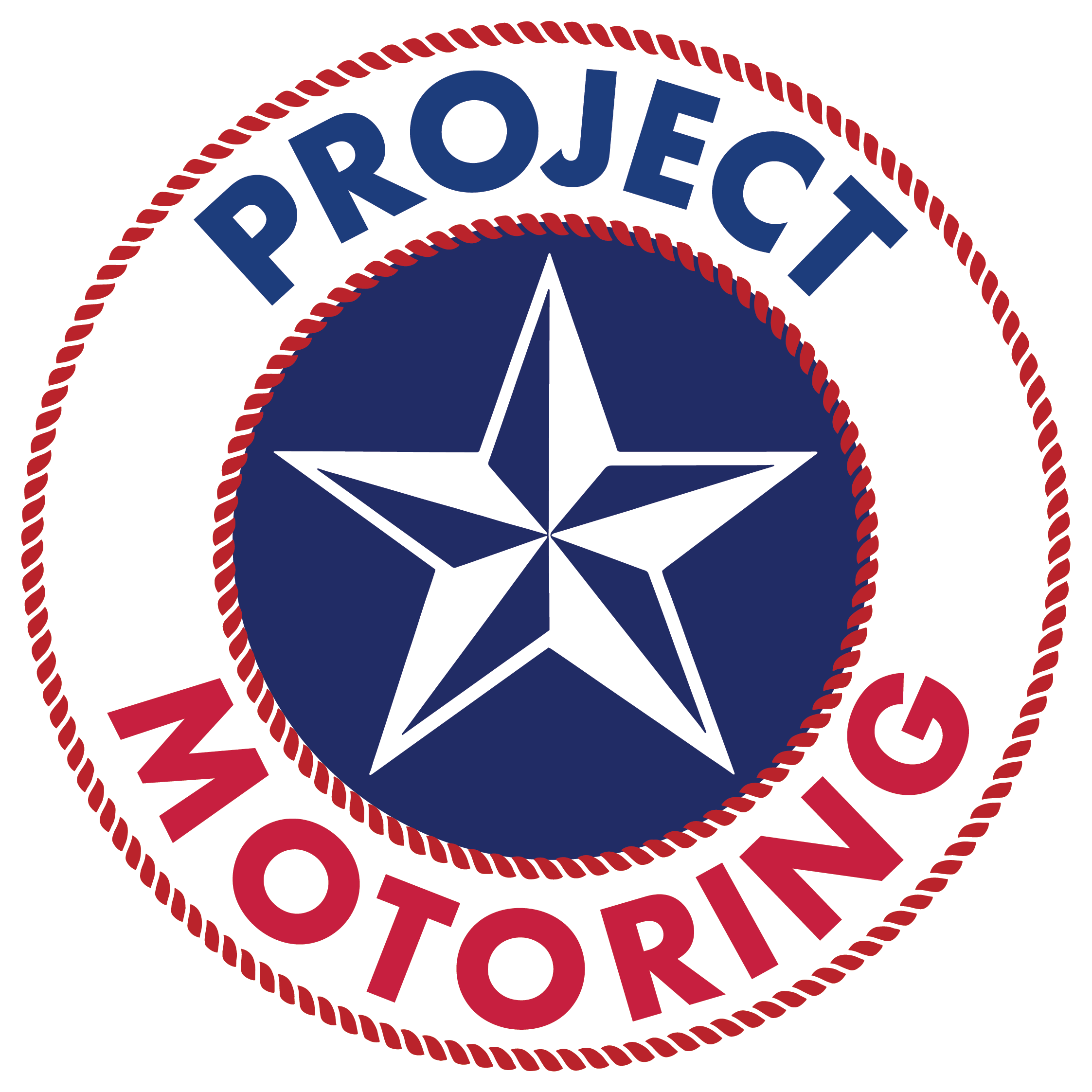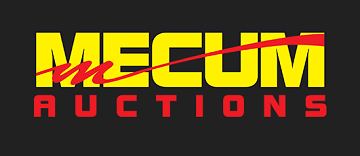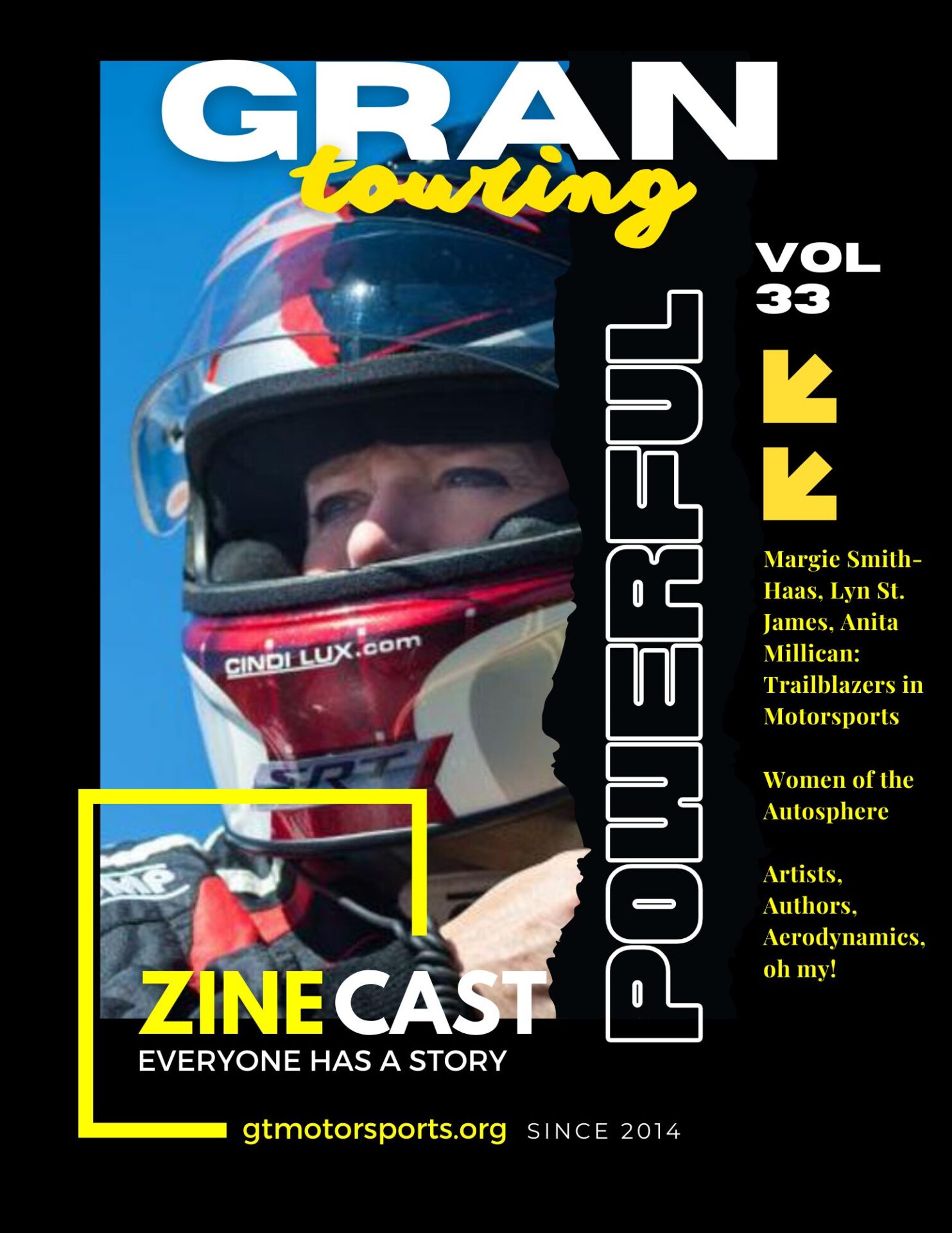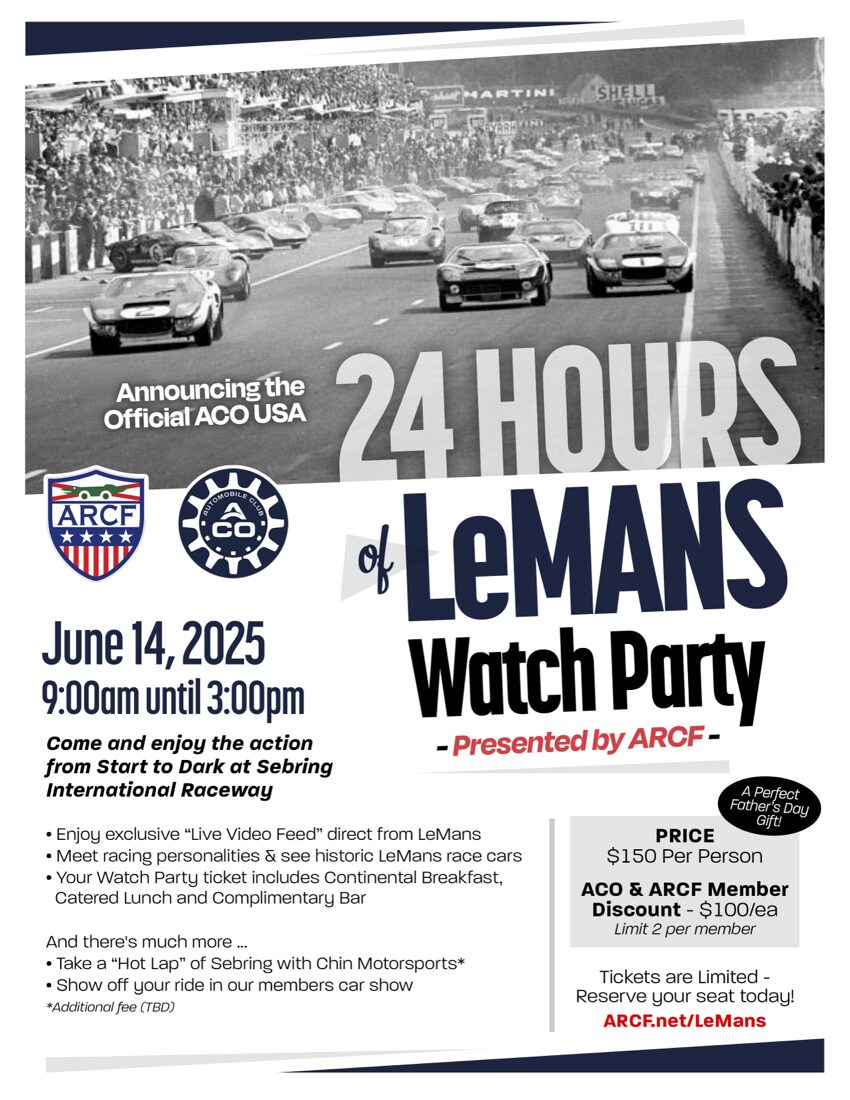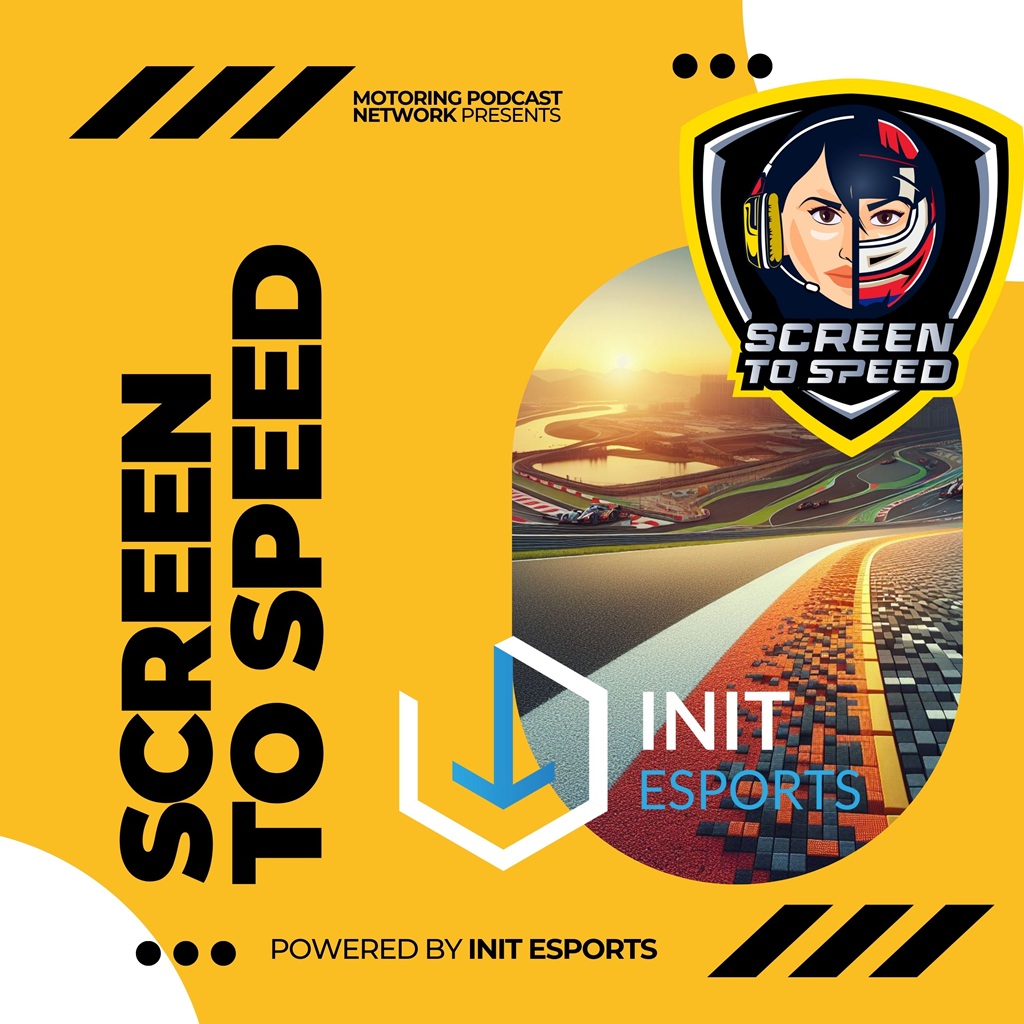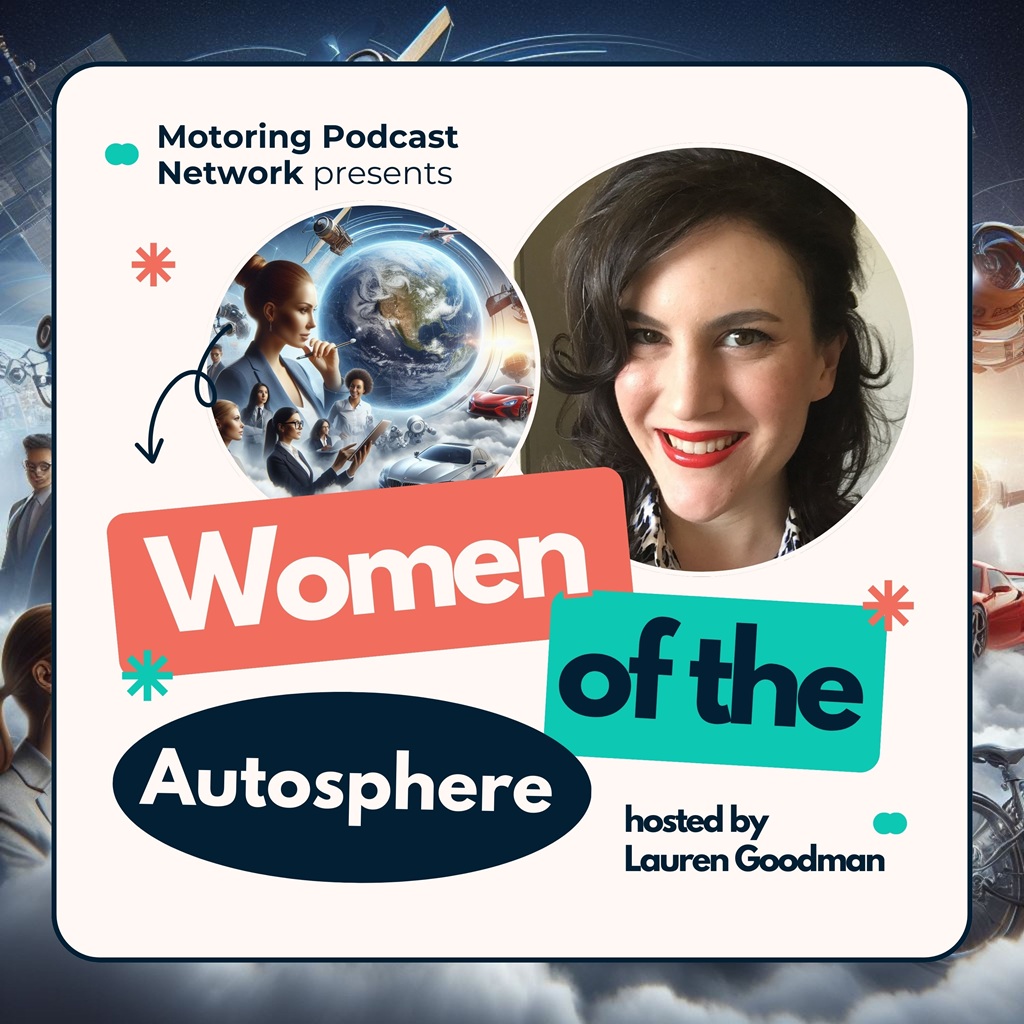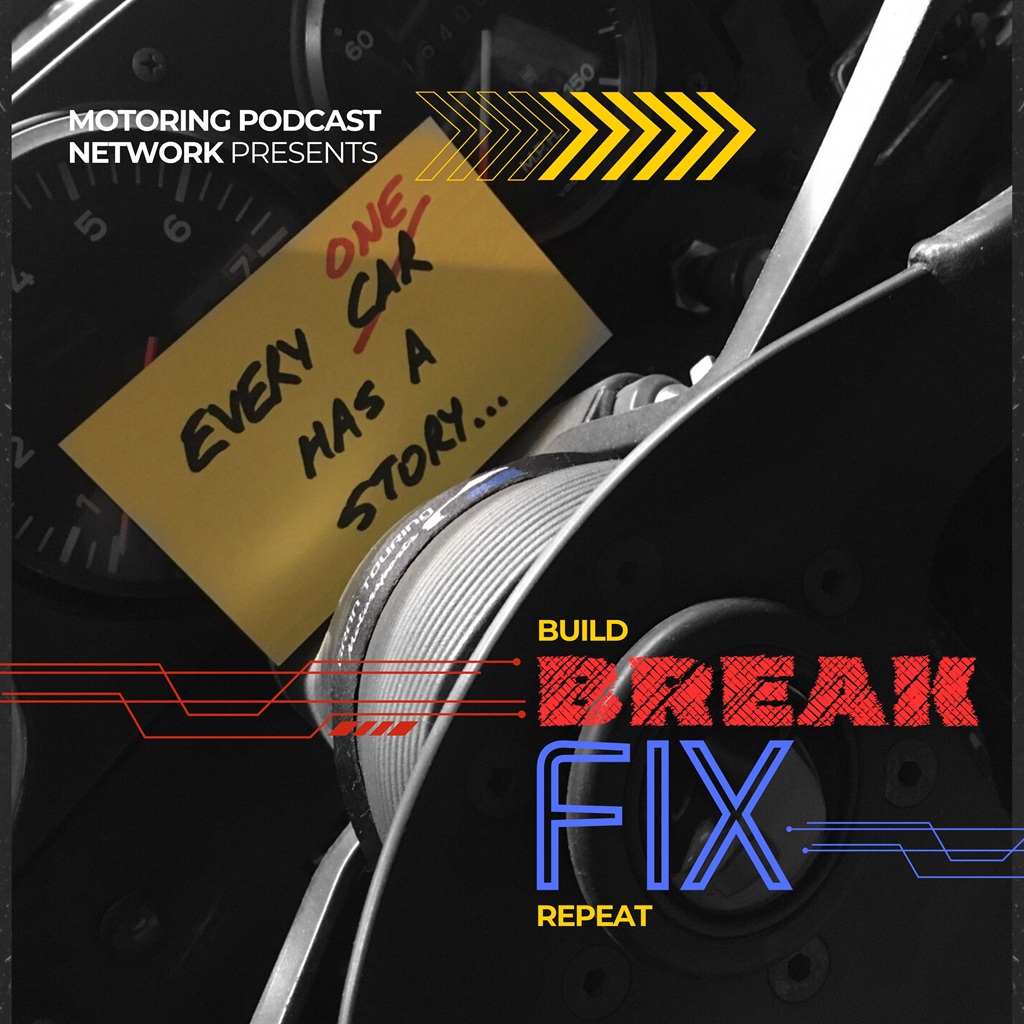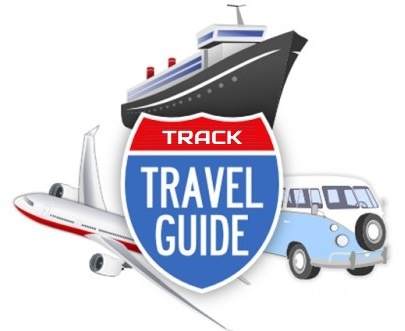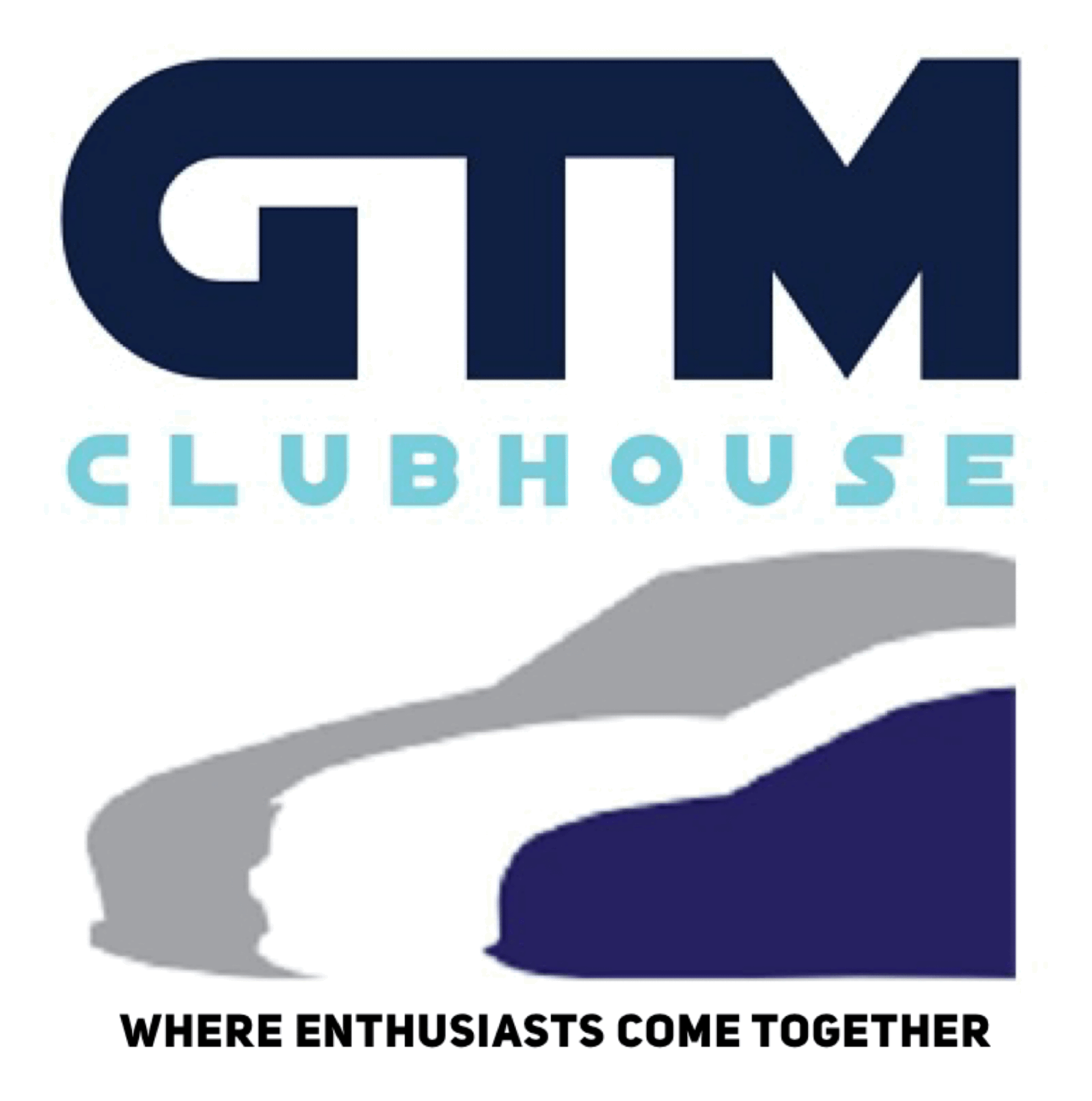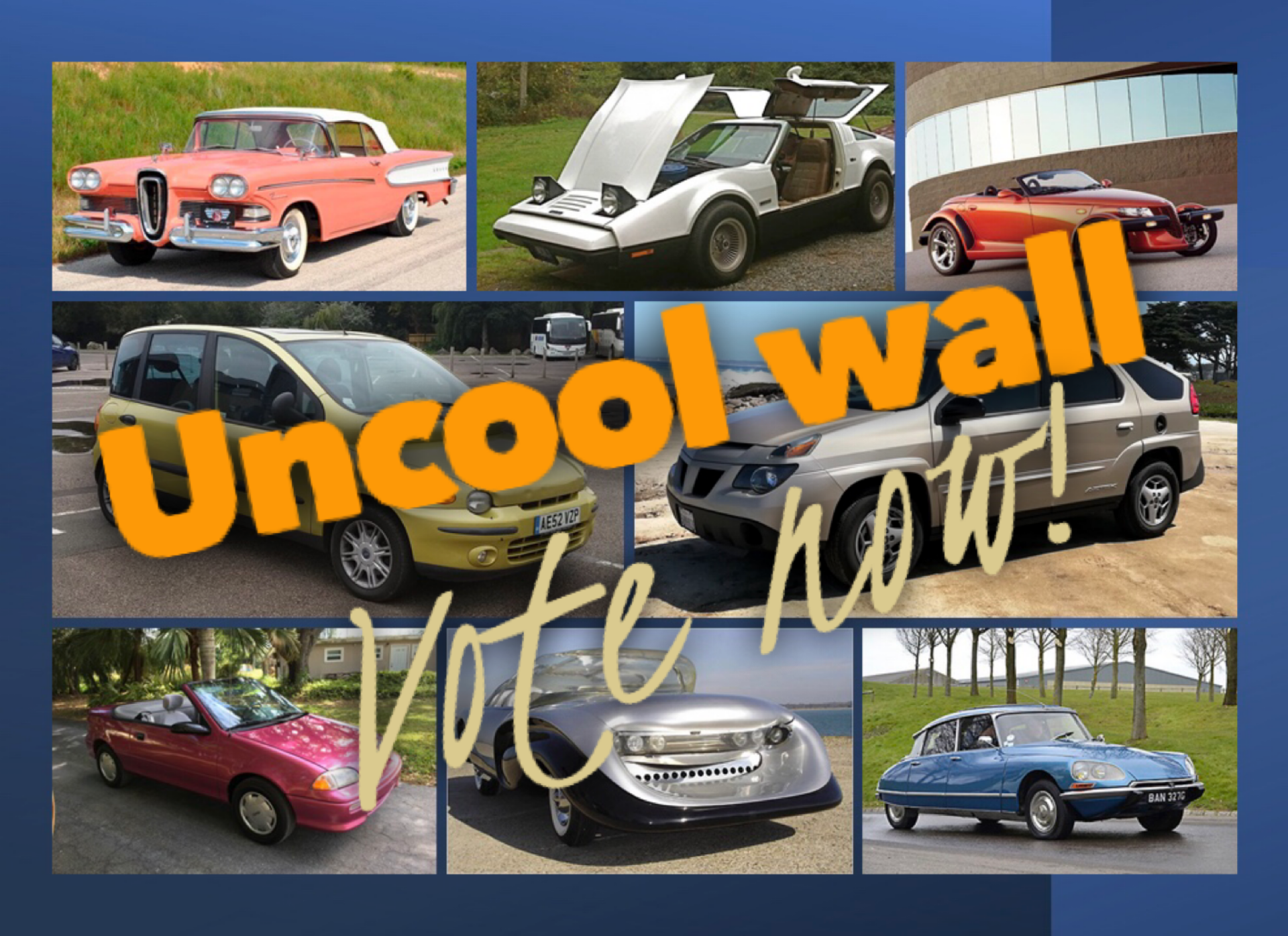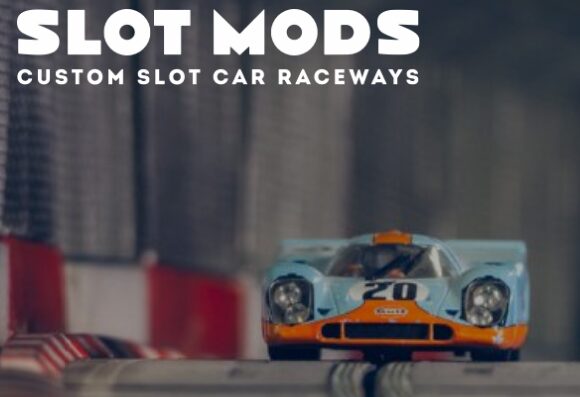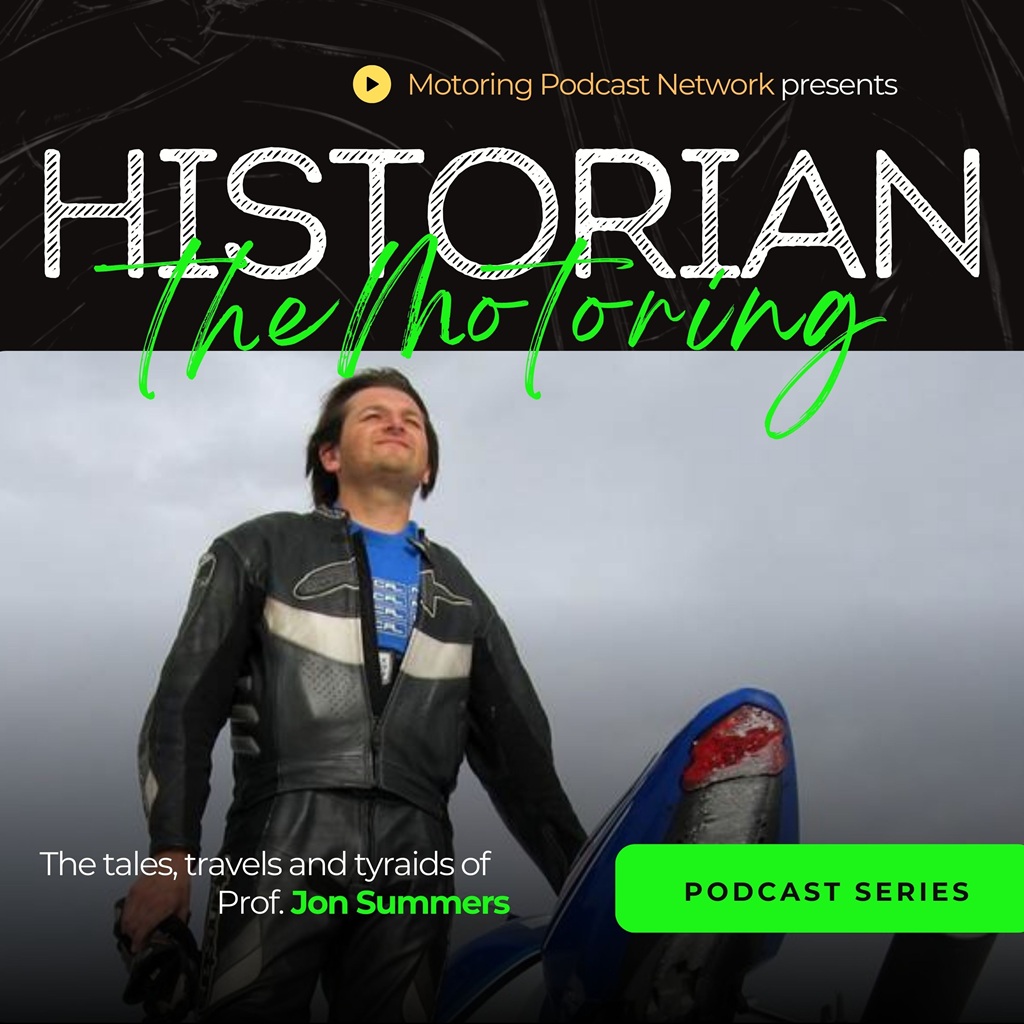Our guest tonight is a female road racer, instructor, and event coordinator with the Washington DC Region (WDCR) of the Sports Car Club of America (SCCA).
She has several years of competitive experience, two years of road racing experience, and finished 2nd place in the 2021 WDCR H-Production championship, with two wins under her belt. Taylor Hyatt was the 2021 rookie of the year and she’s here to share her motorsports journey with YOU!
Tune in everywhere you stream, download or listen!
 |  |  |
- Spotlight
- Notes
- Transcript
- Highlights
- Learn More
Spotlight
Taylor A. Hyatt - Club Racer for WDCR SCCA
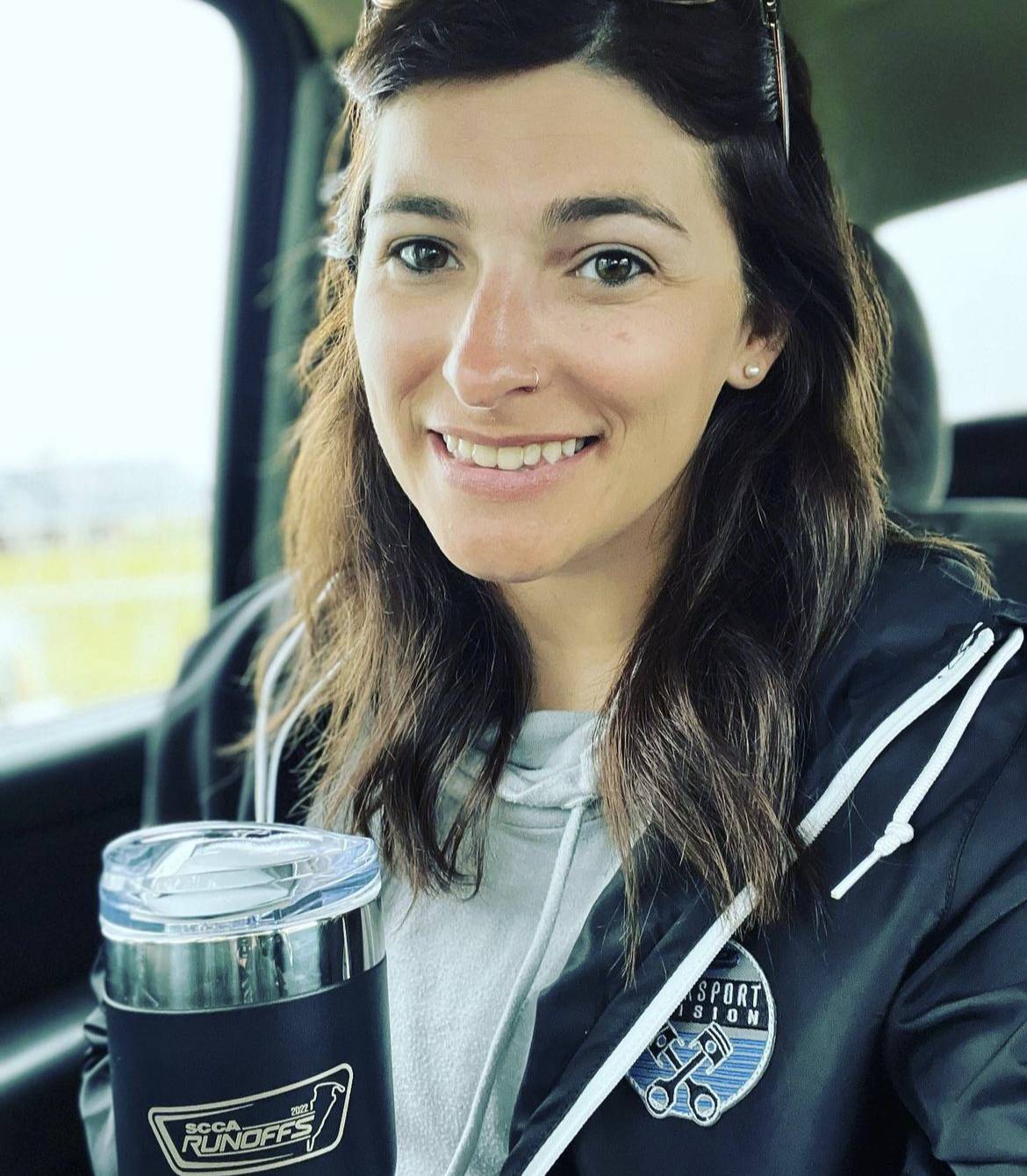
Taylor and her 1987 GTI "Big Bird" have several years of competitive experience, two years of road racing experience, and finished 2nd place in the 2021 WDCR H-Production championship, with two wins under her belt. Taylor Hyatt was the 2021 rookie of the year. If you're looking to invest in a growing race team, she's got some sponsorship opportunities for you!
Contact: Taylor A. Hyatt at taylor.hyatt3@gmail.com | N/A | N/A![]()
![]()
![]()
Notes
- How did you get into cars, and more specifically Club Racing? Did you come from a car/racing family? What made you into a Petrol-head, did it start as a kid? Or did you come into it later in life?
- Did you start in club racing, or use a “gateway motorsport” like AutoCross, Karting or HPDE to work your way up?
- Take us through the Club Racing experience, from School to Competition – what’s it like?
- What kind of car are you running, and Why? How involved are you in the build / maintenance of the car?
- How different is the H-Production GTI vs the ITA/ITB GTI?
- What tracks are you running at? So far, which is your favorite, which is the worst, what’s on your bucket list?
- What do you do to prepare for an event/race? Do you have a workout routine? How do you mentally prepare? Do you use simulators?
- One of your other jobs is “Charity Coordinator” at the WDCR, what does your role entail? How can people get involved in your work?
- Probably one of the most difficult things about racing (and often overlooked) is the funding needed to keep things going. Talk about your budget – and You have some opportunities for folks to sponsor you?
- What is your goal? Pro? SRO World Challenge > IMSA? LeMans? Where do you dream to be in Motorsports in the next 5+ years?
and much, much more!
Transcript
Crew Chief Brad: [00:00:00] BreakFix podcast is all about capturing the living history of people from all over the autosphere, from wrench turners and racers to artists, authors, designers, and everything in between. Our goal is to inspire a new generation of petrolheads that wonder. How did they get that job or become that person?
The road to success is paved by all of us because everyone has a story.
Crew Chief Eric: Our guest tonight is a female road racer, instructor, and event coordinator with the Washington DC region of the sports car club of America. She has had several years of competitive experience, two years of road racing experience, and finished second place in the 2021 WDCR H production championship.
With two wins under her belt. Taylor Hyatt was the 2021 rookie of the year, and she’s here to share her motor sports journey with you. So let’s welcome Taylor to break fix.
Taylor Hyatt: Hi, thanks for having me.
Crew Chief Eric: And joining us tonight [00:01:00] is Tanya, our executive producer of the drive through series. So we’re looking forward to this little chat.
Like all good break, fix stories. Everyone has a superhero origin. So tell us the who, what, where, and when of Taylor Hyatt. How did you get into cars more specifically club racing? Did you come from a racing family? What made you a petrol head?
Taylor Hyatt: Like many other SCCA members, my journey started by going to races with my dad.
We spent a lot of time at the track when I was a kid. So I got involved from a really, really early age and actually maybe even before I was. Born. So there’s a couple of interesting pieces to my story that maybe some others don’t have. I’m a third generation road racer. My dad started at summit point in the eighties while he was supposed to be going to college at shepherd.
I say supposed to be, uh, once he was hooked, he got my grandfather involved. He started racing and it really just became a family affair. My dad and my grandfather were racing and then my grandmother was crewing and doing all that behind the scenes stuff as well. [00:02:00] Then fast forward to the late 80s, early 90s, my dad had kind of backed off from road racing a bit and become an EMT at some point where he met my mom, who was also an EMT.
So they met at some point, you know, both EMTs working there.
Crew Chief Eric: Parked right there in front of Shea Summit. As cozy and romantic as that is, right?
Taylor Hyatt: Absolutely. So when people ask me if I have racing my blood, I’m like, you know, I probably do. Like, we don’t want to go down that road, but I probably do. They saw each other across a crowded paddock.
Right. Exactly. Yeah. And it’s a great story. I love it. And my boyfriend, Mike and I, we actually met at Summit too. So it’s kind of a cool story to have to tell others. My parents were involved for a long time and then I started attending SCCA road races, probably around 10 years old, regularly going there with my dad.
And as soon as I started going, I was volunteering. So I was the little kid in registration. That’s like trying to help with everything. The kid in [00:03:00] timing and scoring, like, you know, just running around trying to do anything. I could do to help and just be there.
Crew Chief Eric: One of our favorite Pit Stop questions to ask as part of the origin story, especially if you grew up around cars, is what kind of posters did you have on your wall?
Taylor Hyatt: It’s so funny that you say that. I didn’t. I really didn’t. And I think it was because I was so involved that I wasn’t that kid that was like, Oh, look at that car. Oh, I need this poster. Because I saw them all the time, you know what I mean? So it just wasn’t like all the kids in my class, if we’d be out in recess, like, look at that car that just drove down the street.
I’m like, that’s cool. I guess, you know, I see better than that every weekend. So I really wasn’t that kid with a bunch of posters on their wall.
Crew Chief Eric: Being involved in racing from a very early age, were there cars that you were drawn to or that you gravitated to when you were at the racetrack? You’re like, man, that’s really cool.
Taylor Hyatt: Porsches have always been my favorite. If I had to pick really, I want to get my hands on anything. I want to drive them all. I want to touch them all. I want to be in the mall. I [00:04:00] just love cars. in general and racing.
Executive Producer Tania: So as you were stepping into your foray in club racing, what did you use as your quote unquote gateway motorsport or did you have one meaning autocross or karting or did you start in HPDE first?
Taylor Hyatt: HPDE or autocross would have totally made more sense than where I actually started. Again, with my dad, SCCA and I went to a few rally crosses with him and really. Fell in love with the group of people that were out there doing that every weekend. The cars, they just pick stuff off the street and bring it and go rally crossing.
So I did that a few times with my dad. We actually co drove a couple of times over a span of a couple of years. It was great. It really taught me car control at that point, which I didn’t really know that I needed, but it helped a lot with that. After that, I did that around 2016, 2017. And then in the fall of 2017, I did my first [00:05:00] HPDE with the Washington, D.
C. region of SCCA. From then, it was just a matter of time before I was racing. I really caught the bug at that point. I wasn’t too sure that I wanted to go down that route. I had volunteered for so long and I love that side of it. I just didn’t know if racing was going to be for me. But it didn’t take long after that first HPD event to want to do more.
Crew Chief Eric: So there’s plenty of people that go through that same experience that you just described and some cross that threshold and we never see them again. They end up in club racing and you know, we look fondly on the times that they spent with us at HPD and then there’s other folks that are much more sort of.
Timid about making that transition since you went through that whole journey, HPDE to competition school, and now full time into club racing, kind of walk us through that journey. What’s that like?
Taylor Hyatt: One thing about HPDE, you can always get that constant feedback. So I really enjoy that part of the high performance driving, having coaches either in car, [00:06:00] in class combination of the two.
I really enjoyed that part. And then. That made a very easy transition into competition school. Moving up through the ranks within HPDE, you’re starting as a novice, you’re moving on into intermediate, you’re soloed, you’re advanced. It’s a very gradual process that really sets you up for competition school, if that’s where you want to go.
So competition school really teaches you that racecraft, that you’re not going to get in HPDE because that’s not the point of it. Competition school, having That race craft, then again, an easy transition right into road racing, where you just continue to perfect those skills.
Crew Chief Eric: People make a lot of assumptions about what club racing is like.
I’ve also heard that, you know, everything you learn in HPDE, other than which way the track goes, sort of gets checked at the door, right? It’s very much apples and chainsaws as a comparison I like to make, because to your point, there’s race craft involved in club racing. So what are some of the things that you kept with you or that you [00:07:00] brought from other disciplines into club racing?
Taylor Hyatt: HPDE will teach you the basics, and from those basics, you have a great head start into building that racecraft. One of the things they teach you in HPDE is, you get to your corner, you do your braking, then you do your turning. It is one step, then the next, then the final step. When you move into that racecraft, you’ve got to be doing all of those things at one time, but controlling the car at the same time.
So I think you use all of those things. You just have to get a little better at them, start moving those things closer together that they’re teaching you, and not just Step by step by step, it all kind of comes together and you’re doing it all at the same time
Crew Chief Eric: and all of us on this call are HPD instructors as well.
So you kind of realize that HPD is very tactical, right? To your point, step a step B, step C, but club racing becomes very strategic. Not only are you doing all those things, you’re dancing with the car, but you’re. Being defensive, you’re being aggressive, [00:08:00] you’re blocking apexes, you know, you’re defending corners, you know, you’re looking for other people’s mess ups.
Those are things that you learn pretty much on the battlefield of club racing compared to HBDE. They don’t teach that, I guess, aggressiveness until you get to competition school.
Taylor Hyatt: Absolutely. And another big piece of that is even if you’re in advanced or in an open passing situation, it’s very limited.
People don’t want to hurt their cars that they have out there. So even if you’re in that open passing, It’s so limited that you don’t get the experience, and I will say that was one of the more difficult things to kind of get over moving into club racing. Someone might be next to you and you’re not really aware of it until maybe sometimes it’s too late.
I mean, you really have to be aware all the time of your surroundings. You’re not just waiting until you get to a straight. And that’s where everybody’s going to pass you, or you come out of the corner and you know, to say to one side or the other, it is putting all of those things together, but then also car can pass you in the apex.
You’re defending, as you said, I [00:09:00] mean, you’re never going to get that in HPDE, but all of those skills apply in club racing.
Executive Producer Tania: Another big difference with HPDE versus the club racing is even in those open passing groups, when you’ve become, you know, super advanced, the cars are not. The same, like if you’re in a club race and it’s club racing, E36 is okay.
Everybody’s got an E36, the balance, the power, they’re all the same. Whereas in an HPDE, you could have a Lamborghini coming down in on you and you’re in Honda Civic, that passing experience is also going to be very different than anything you’re going to experience in the club race setting.
Taylor Hyatt: It is to a point.
So I race in a multi class group. We do have some of that speed differential, especially on the longer straights, and one thing I will say. I drive a 1987 Volkswagen Golf with all of like six horsepower, right? So when I was doing HPDE, I was hesitant to move into intermediate, into advanced because of the speed differential.
I’m telling you, I have a [00:10:00] really super strong left arm from all the point buys that I had to give. I drove my line. I was great. I have the skills, but my car is never going to keep up. One of the downfalls of HPDE that I would say there is that big speed differential, but you’re going to have that in club racing at some aspect as well, just because a lot of SCCA is multi class racing.
But one of my favorite stories about HPDE, I had moved into intermediate and I’m really thinking I’m just great, right? I’m doing good. I’m hitting all my marks. And this Mustang in front of me is just. Not moving in the corners will not let me around on the straights, nothing. And I’m like, man, I don’t, I don’t know what to do.
I’m going to have to pit because I can’t learn anymore. Just following this Mustang seriously, 80 horsepower, keeping up with this Mustang. So we come out at turn 10 at summit and I see this hand just ever so slowly move up the left side of the car and give me a point by, I still had an instructor in the car.
And I looked, I’m like, can I do this? [00:11:00] And he’s like, absolutely, go for it. So I passed this Mustang in my Volkswagen Golf. I had no idea what to do with myself. And he’s like, just keep going. So, you know, of course the Mustang had to back off going down the straights. But after that, I never saw that car ever again.
My point is, don’t ever think that just because you have a slower car that you can’t go do HPDE. Everybody has a spot.
Crew Chief Eric: 100 percent. Now, in your journey, you became a coach at some point. Did you do that before or after you went to club racing?
Taylor Hyatt: So I am a instructor for the comp school. Within DC. Yeah. So I went through comp school, got my race license, did a year road racing.
Then I moved into a trial run, being an instructor for the comp school. And then this will be my first solo year as an instructor for the comp school.
Crew Chief Eric: Do you see yourself going back to HBDE as an instructor there too?
Taylor Hyatt: I get car sick, so I don’t know that that’s a [00:12:00] possibility. The comp school where Outside of the car because most of the cars don’t have a passenger seats, but maybe at some point, I just don’t know if I could do that.
That’s a lot of trust in somebody that you don’t know. And I praise you guys for doing that. I had a lot of really, really great instructors in the car with me and they were fantastic. But for me, I just don’t know if that’s an option. But the instructing for comp school outside of the car, absolutely.
I’ll continue to do that.
Crew Chief Eric: How does that work exactly?
Taylor Hyatt: We meet Saturday morning, kind of just go over the basics with the students. We do some orientation laps, and then they’re basically sent out in their cars for an open session in their group. So the instructors go out to the corner stations and watch for certain things.
That early on in the day, it’s Do they know the line? It’s as simple as that. I mean, you have to know the line, car control, are they in control of their car at all times later on throughout the weekend? It’s are they defensive? Are they too aggressive? You know, are they [00:13:00] safe? Can they keep up all of those types of things that you want in club racing?
The race craft, you really can’t get to at that point. It’s a very short weekend, but. You can see potential and see where there’s maybe some things that need fixed. So it’s really just outside of the car coaching, meet up with the students and give them feedback on what you think that they could do better or how well they’re doing on the track.
Crew Chief Eric: So in this progression path, there is a sidestep and many people don’t. Think to take it along the way to club racing, which is time trials, which is kind of my sweet spot because coming up through autocross and also through carding kind of similar in the sense that qualifying is super important in carding autocross is all about beating the clock.
So you put the two of those together. You get time trials and qualifying is very important to the race itself, not necessarily the race craft that comes after, but where you’re positioned on grid is really important. Now, granted, we [00:14:00] can’t all win the race at turn one, but it makes a big difference when you’re at position three and position 17, right?
How do you feel about time trials? Is it a step that more people should take before going into club racing, or do you just sort of. Send it and figure it out along the way.
Taylor Hyatt: You know, I think it’s whatever they feel most comfortable with. And, and I will probably say this a lot throughout the evening.
Everybody has a place, whether that is rally cross, autocross, carting, club racing, HPDE, or time trials, everybody has a place. And you just have to be comfortable with what your skills are, what car you have, what safety equipment you have. You know, there are some people that don’t want to take that. big step into club racing, because there’s a lot of stuff that comes with that.
A lot of safety equipment, a lot of car prep, a lot of rules. It’s not as easy as, oh, I’m advanced in HPDE, time to go to club racing. You really have to have the drive to do that. And I think that’s why we see a lot of people not make that transition. They’re in [00:15:00] advanced for a long time and just don’t.
Make that move because I don’t think it’s for everybody. I think some people just really want to drive their cars fast and not have that risk of as much damage. You know what I mean? And club racing, it is wheel to wheel should be no contact, but we all know things happen. There’s just not that big of a risk with HPDE, which is great.
I love that there’s that option. Time trials, again, that risk is increased a little bit, but not as heavily, I would say, and I don’t have a lot of experience with time trials. But again, I think everybody has a place. And if that’s that next little bit of adrenaline you want, that’s the place for you.
Executive Producer Tania: So you’ve already.
Talked about the car you drive. You got a Mark II Volkswagen Golf. So welcome to the Volkswagen family. You’re in good company here. And they do multiply, don’t they? They just keep coming. Why did you choose that car? Like, how did you get into that?
Taylor Hyatt: So a couple of reasons. One, it was It’s really, really cheap and really easy to fix.
My [00:16:00] boyfriend, Mike, he had picked one up in 2016 from a friend of ours and had completely redone the car and did his competition school in 2017. So we already kind of knew what we were looking at. We had all the tools, all the spare parts. So it was just a very easy choice to say, yeah, this car is like a thousand dollars.
Let’s go pick it up. We already have all the spares. It’s like We can just build another one. Another cool part of that is that’s what my dad raced when he was racing in the eighties before he moved on to minis.
Executive Producer Tania: So are you heavily involved in the cars already built, but continuing the maintenance, doing any other modifications?
Taylor Hyatt: I know enough to be dangerous. Is what I like to tell people.
Crew Chief Eric: We’re all YouTube certified mechanics
Taylor Hyatt: here. When it comes to more of the fabrication side, like I can help figure things out. I can help put windows in. I can help rewire. The mechanical side, that’s [00:17:00] not going to be a good scenario for anybody.
So I let at least the people who think they’re experts handle that and my car is still running. So I’m okay with it. Somehow I feel like I was left behind. My dad was involved in racing for so long and cars and raced and somehow I never learned anything about cars. I feel like I got left behind. I’m a little bitter about it, but at this point in my life, I should just leave that up to the professionals.
Crew Chief Eric: We’ve talked about club racing. We’ve talked about the car. The next big part of this is classing. We mentioned in the introduction, the H production class that you’re running in, knowing the GTIs, the Mark IIs specifically, they’ve been in SCCA forever, but they run in different classes. So you’re an HP, but there’s also GTIs and ITA and ITB and other classes.
How do they compare? What does that exactly mean?
Taylor Hyatt: Specifically, I can speak to the difference between ITB and H production because my car was originally an ITB car that is very much. I won’t say stock, but pretty close to stock. I mean, you can’t [00:18:00] do a lot. You can make some minor improvements, but you’re never going to get that speed, that extra horsepower, less weight, things like that.
You’re just not going to get that staying in an ITB class. Moving up into HPROD, there are a lot more things you can do and you’ll see a difference between the front runners and the back of the pack and what you can do to your car, which some people don’t enjoy, you know, the, the spec racing has it.
Perks of everybody’s doing the same thing. Everybody’s driving the same car and it really comes down to the driver. In each production or any production class, you’re going to get that bigger difference of front of the pack, back of the pack when it comes to speed. Again, there’s always somebody to race in mixed class racing and prod racing.
You’re always going to have someone. I don’t mind that so much, but as far as car prep, it just really comes down to the more you can do with every single piece of the car.
Crew Chief Eric: We’re always learning regardless of where we are in the stage of our racing careers. So talk [00:19:00] about some of your biggest, what we call code Brown or oops moments, but for the lay people, you’re learning moments.
Taylor Hyatt: There have been several as much as I’ve been around road racing my entire life. Getting behind the wheel of that race car. It’s a completely different experience that just doesn’t compare to anything else that I had done. So the first one, one time I went out on track with 10 pounds of air and the rear tires, they should be around 28, 29, depending on the weather.
So I came in, I’m like, what is wrong with this car? It’s a completely different car. I don’t know what’s happening. Fix it. Somebody just was like, Hey, why do these tires look flat? Oh, someone changed my tires and didn’t fill the air in them before I went out on track. First oops is always check your car before you go out on track.
That is a huge one, not only mechanically, but safety. Always check everything before you go out.
Crew Chief Eric: I believe the term is trust, but verify.
Taylor Hyatt: I the same thing. Yeah, absolutely. It will save [00:20:00] you in so many cases just. Doing that final check, we usually, you know, go through qualify or practice and then come in, set everything up.
So we don’t have to worry about it until we go back out. Even then we just do a quick double check before we go back out on track. So that is my first piece of advice from my oops moment. Another one, a bigger one that really just, again, comes with the race craft is, prepare yourself for those moments when you don’t know what to do, and I hadn’t.
done that. I was racing my first national majors race at summit point. I found myself in a situation that I had never prepared for. I was coming into the fastest corner of the track, turn four, and the throttle cable stuck. Luckily, it’s got a safety that the throttle wasn’t actually accelerating, but I had no idea what to do.
I mean, the car Was just shutting off. I had no power, but I couldn’t really comprehend exactly what was going on in the moment [00:21:00] because everything’s happening. You’re in your first big race. You’re in a car that you kind of know what’s happening, but you’re not a mechanic. You don’t know everything that’s going wrong.
You have all these other drivers that you’re not used to. To racing around and you’re new. I mean, it was only my second year. So I wanted to get off track as quickly as possible because I didn’t know if I had blown an engine or, you know, I didn’t know if I was leaving stuff on the track for my other friends.
They’re all friends, which is the terrible part about it. Like I don’t want to ruin anybody else’s race. So I tried to pull off the track and I was carrying much more speed than I thought I was and right into the wall. I went again, prepare for. what you can’t prepare for and just take a minute to breathe and kind of assess the situation before making any decisions.
Crew Chief Eric: It’s a good thing that those GTIs are tanks.
Taylor Hyatt: Given
Executive Producer Tania: those experiences, how do you prepare yourself now? How are you putting yourself in a mindset to be ready for something you don’t [00:22:00] know? Exactly is going to happen.
Taylor Hyatt: What I do is just take that extra second. It goes by so fast, but take that extra second to just breathe before making a decision that you can’t take back.
You know, that was something I couldn’t take back at that point. I tried, I tried really hard, but I couldn’t take it back at that point. So it’s really just, there is time. It may not seem like it, but there is time to just take that breath, think about all of your options, and then. Make your best guess and the other thing I will say is after you make that best educated guess, it is what it is and you have to just know that you did what you could in the moment or else you’ll never get back in the car.
If you keep not thinking that you can make those types of decisions on the fly, you’ll never do it. So make the decisions as best as you can and Keep going.
Executive Producer Tania: So what is your racing schedule look like right now?
Taylor Hyatt: This year we are planning quite the season. It’s very jam packed at the front. So our main goal for this [00:23:00] year is to race the SCCA runoffs at VIR.
So that is in the fall. And to do that, you have to qualify basically to go to that race. There are several options of how to get there, but the option we are taking. is doing two national level events and two regional level events. So I will be racing at Summit Point two times in April, VIR once in April, Summit Point again in September.
And then the national championship runoffs at VIR at the end of September.
Executive Producer Tania: There’s a lot of months between April and September.
Taylor Hyatt: Yeah. So we are getting a new engine. It’s currently in the process of being built. We were hoping to get it in. So we’d have it the whole season, but it’s just the industry right now.
It’s rough and we don’t want to rush it. That’s one thing we don’t want to do. We don’t want to have to put the motor in in a week’s time. You know, we want to take our time and really do things how they’re supposed to be done. We’re waiting for that. At this point, it just doesn’t look like that’s going to happen [00:24:00] before April.
So we’ve done some other things over the off season to take weight out of the car, to give me a little more horsepower in some areas. So we’ve done some little things, but the new motor is going to be the big difference. So we’ll race all of our April races as the car is now, and then spend the summer.
Redoing the engine and getting that in ready for September.
Executive Producer Tania: So then you have raced one car in April and you’ll be racing a completely different car, so to speak, in September. Yes. What are you going to do to familiarize yourself with the new engine and the way it’s going to handle and the way it’s going to feel and all those things?
Are you just going to go for it?
Taylor Hyatt: That’s kind of why we’re doing the home race in September. Technically, we don’t have to do that race because we Did a race late in October last season that qualifies us for this year. So we don’t technically need that second regional race towards the end of this year, but it’s our test.
And as a lot of people find out that test weekend before the runoffs, a lot of things go wrong. So [00:25:00] not only is it me getting used to hopefully potentially a faster car. But also testing that it’s going to work the way we want it to. And be reliable. Yep. Yes.
Crew Chief Eric: As Tanya alluded to, you have a lot of time between April and September.
So do you see yourself maybe filling that with some HPDEs, checking some bucket list tracks off your list? Where are some places you’d like to go run your car? Let’s say if your car was running during that time or borrow someone else’s.
Taylor Hyatt: I would go anywhere and race any track. I want to, I want to race them all.
I want to see them all. We all know that’s not possible and never going to happen, but I am one of those people that when I go to a new track, it is like Christmas morning. You’re learning every single piece of that track. There are no expectations. You are just out there for the very first time learning everything.
And that to me is the best lap. You will ever have is that first time on a brand new track. I would love to go to all of the tracks. We are very fortunate where we live on the [00:26:00] East Coast that we have so many good tracks around us. And history, the Glen, Daytona, VIR, they’re fantastic and have so much history.
This year, VIR will be new for me in April. So I’m excited about that. Obviously, I’ve been there. quite a few times, but never behind the wheel. So I’m super excited for that. In the future, maybe Indy. I think that would be really cool if SCCA goes back there for the runoffs. Again, just the history. I love to combine the two, racing and history, and just get all of that nostalgia from years of being a motorsports fan.
Executive Producer Tania: So have you done all the Summit Point tracks?
Taylor Hyatt: I have never driven on the Shenandoah. I don’t know that Big Bird, I call my car Big Bird, I don’t know that Big Bird would survive the Shenandoah. It is so bumpy. I think she’d just fall apart. I haven’t made it over to the Shenandoah. The Jefferson, I love, and I think it’s because it’s so much like a rallycross course that I just, I have a blast.
That is actually the track. That I did my first HPDE [00:27:00] on in a Dodge Neon. So that was interesting and really fun.
Crew Chief Eric: Shenandoah is a great place to shake down a car because as one of my long time friends used to say, it will show you everything that’s wrong with your setup. And if you can get the car perfect there, it’s perfect everywhere.
Taylor Hyatt: Yes, I would believe that. I do a lot of flagging as well. So I flag a lot of events on the Shenandoah and it is a wild track. That’s for sure. So I’ll get over there at some point. I just have
Executive Producer Tania: to find the right car. Got your racing season. You got the schedule all laid out. You’ve got the car ready for round one.
It’ll change at round two. What are you doing personally to prepare for these events?
Taylor Hyatt: So one is getting back into shape from my winter, you know, however many, I won’t say, but I think that’s something we all have to do is like, okay, we have to realize as racers, we have to fit back into our driver’s suit that we paid a lot of money for every year.
So we can’t let the winter get to us too bad. I [00:28:00] keep up with some strength training and cardio and stretching anyway, just, I feel that it helps really. Make those Mondays a lot less painful after being in the car all weekend. If you already are kind of in tuned to having those muscles work like that anyway.
So I do keep up with that. We do have a SIM rig here in the basement that we use. You know, I have a love hate relationship with that SIM rig. I am one of those people that I need to feel every little bump and tweak of the car and. The SimRig just doesn’t give that to me. So I find it very difficult, but as far as learning a new track, it’s the best way to go.
So I used two years ago now when I went to NJMP for the first time, I used the SimRig a lot to prepare for that. And it absolutely helps, at least with learning the track layout. So those are my two things, kind of getting myself back into a decent shape. And then. You know, getting some time on the sim rig.
So any
Executive Producer Tania: mental [00:29:00] rituals did you go through to kind of prepare to get in that zone, to get zenned out? Or as soon as you put your suit on and your helmet on, you just, the comm washes over you and you’re good.
Crew Chief Eric: Are you implying that racers are superstitious as well?
Executive Producer Tania: Everyone is
Taylor Hyatt: who they are. I will answer both of your questions actually.
Mentally, I try to think about racing as little as physically possible for the entire week leading up to the event. If I think about it, I am so stressed out and so overwhelmed that come race day, I perform terribly. So I really and truly try to not think about, like, I won’t even pack my bag for the weekend or I’ll pack it like three weeks in advance because I can’t think about it.
I just need to live my normal, everyday, boring life and then. Friday night, then I go to the track and start the whole process before that. I just get so worked up mentally. I just really try to not think about it. And then the morning of I do, I kind of [00:30:00] have to get myself in the right head space of, okay, this is what’s happening.
And it kind of goes back to what we were. talking about earlier with getting yourself in that mindset of I’m going to have to make decisions really quick. I’m going to have to concentrate like this is not your everyday life. It is so much different than how you’re trained to think. It takes a lot. It is not easy to get yourself in that mindset.
And then as far as superstitions, I actually have a pin that goes on my race suit that my grandfather had for a very long time. It has been through my grandfather’s comp school. I gave it and put it on Mike’s suit. When he went through comp school, I had it on my suit. And then my dad just went back through comp school last year.
After 37 years of not racing, he wore it on his suit. So it’s pretty cool. We do have a little superstition that everybody wears it on their suit.
Crew Chief Eric: Outside of all this, one of your other jobs is the charity coordinator at the WDCR, the Washington DC region of SCCA. [00:31:00] So what does that role entail and how can other people get involved in helping you with your job?
Taylor Hyatt: I took that on, last year was my first year as the charity coordinator. I really just plan charity events during our regularly scheduled events. To bring a little bit of giving back to the community, I like to say that most of us live, work, and play in. I think getting that many people together as many times out of the year that we get together, we should really be giving back to our communities.
Last year, I planned three events, one at a road race, one at an autocross, and we actually did a virtual event, and those funds went to the Boys and Girls Club. The local chapter near summit point, and then to the SCCA foundation, we raised over 8, 000 last year between those three events. So that was really, really cool to see that everybody kind of came together in a world where racing is not cheap.
People are still willing to give to good causes and our local communities. So [00:32:00] as far as helping, I am. Always, always, always looking for people to help me plan the events, help me staff the events, but also just get the word out there. It’s really hard with how social media is and the algorithms to get this kind of stuff in people’s faces, so just spreading the word when you see it.
is more helpful than you can even realize. Also, if you are a business or know someone who is willing to give products or services for raffles and things like that, that’s a huge help as well. Really just about donations and help and spreading the word.
Executive Producer Tania: So if a young girl walked up to you today and asked, why do you race?
What would you say to her?
Taylor Hyatt: I think I race because that’s where I fit in. It’s where I’ve always fit in. And I think everybody needs to find that place. And if you walk around the paddock at any motorsports event, you will see we are all alike. It doesn’t matter what you look like, how old you are, what you do for work.
When we step into that paddock, We [00:33:00] are all so like minded, it’s crazy. So, I really just think that the motorsports industry is where I fit in. It’s my people. They’re my people. They’re my family. I have made so many lifelong friends through racing that some of them I’m closer with than my own family. So to me, racing is about a place where you fit in.
Not everybody plays other sports. Not everybody fits into those clubs or things in their schools. So this can be an outlet for anybody, male or female, to find a place to fit in.
Executive Producer Tania: I think sometimes people have a preconceived notion, automatically, that motorsports equals Science, tech, math, engineering. And so you have to have that kind of mind background to be involved in it.
And that’s really not the case. I think there’s people of all walks of educational background that get involved in motor sports. I mean, obviously, there’s a financial aspect to it that can be quite burdensome. So if we set that aside. Is [00:34:00] it obtainable no matter what? Or is it really geeky and techie? Like some people might think.
Taylor Hyatt: No, I think, like I said earlier, there’s a place for everybody. And if that is you are a super tech smart, geeky person that can be the person behind all the electronics or the data, all of that stuff that I want nothing to do with, there’s a place for you. If you are that mechanic that wants to get your hands dirty and knows everything there is to know about an engine.
There’s a place for you. If you’re the crazy ones like us who want to be behind the wheel, there’s a place for you, whether you have a car, rent a car, find a friend, go buy a 500 car on Craigslist. Is that even a thing still? I don’t know. But there’s a place for you. And if it’s not actually racing or being hands on with a car.
There are so many other ways to get involved with volunteering or event planning. So many things, especially when you move into club racing, that is all volunteer. Most people don’t know this, that these events are staffed by [00:35:00] volunteers. There’s a place for you, no matter how techie you are, how non techie you are budget, low budget, high budget.
There’s a place for you.
Crew Chief Eric: And it dovetails off of what we talked about earlier, you know, the transition from HPDE into club racing as a coach, you know, you see all walks of life come through the HPDE. For some people, it’s a bucket list. They just got their new Corvette and they just want to drive it like it was intended to be driven and things like that.
And you got the guys that are aspiring club racers and everybody in between. And what’s funny is what you mentioned about different people from different backgrounds, it comes through in their driving style a lot. I’ve had students that are art teachers and they’re very passionate about how they drive and whatever.
And you got these super techie guys from the it industry and they’re overanalyzing their laps. And I even had one student I’ll never forget. I turned to him at one point and I said, you fly airplanes, don’t you? And he goes, how do you know? I said, by the way, you hold the steering wheel and he was like, Oh, you know, and it’s just, it’s sort of funny, these little things that you pick up on.
But at the end of the [00:36:00] day, we’re all behind the steering wheel. We’re all out on track together, communicating almost like bees in a way, right? Where it’s nonverbal, but it’s happening. And it’s, it’s such a beautiful thing to get everybody together like that in that type of arena.
Taylor Hyatt: It really is. And that again, just goes back to what I was saying earlier with once we step into that paddock, we’re all the It doesn’t matter.
And I find this so entertaining that I can really tell people, like, I know a rocket scientist. I’ve met one because he raced with us. Like, you would never think that these people come out and race these cars, and some of them are racing, like, Miatas. Some of them are racing Ferraris, Corvettes, Porsches, it doesn’t matter.
They just want to be in the car no matter what it is. I love it. That is probably the part I love the most. Just everybody really having the same mindset and wanting to go out and achieve the same thing. We all either want to go fast, learn how to go fast, control our car, race. We’re all moving towards the same thing.
Executive Producer Tania: And, you know, to [00:37:00] expound upon that a little bit more and food for thought for listeners who are thinking about getting involved are still unsure, unclear how they can be involved, even if you don’t want to be a driver, like you were saying, there’s so many other things, pit crewing, flagging, EMT ing, right?
But even beyond that, if you have local racing organizations like the SCCA, you can be involved. in the club itself on the committees. There’s plenty of newsletters that go out and artwork. If you’re a graphics artist, things of that nature that you can be doing the event coordination, like you said, journalism, even writing articles, recapping the events.
I mean, maybe you can even get into broadcasting. There’s commentators during the races. I mean, probably about every profession in the world can somehow be tied into motor sports. And they’re like you said, there’s a home for everybody, depending on what you’re interested in.
Taylor Hyatt: Those are the people we’re looking for.
All the time we have racers, could we have more? Yes, absolutely. We could have more, but it’s the people to run the events. We need them. And I think the problem is [00:38:00] people come as a volunteer and they get hooked and now they want to race and we lose them as a volunteer because now they’re racing. That’s what happened to me.
I’m not nearly as involved as I used to be because now I’m racing, you know, do we want racers? Do we want volunteers? I don’t know. We need everybody. So I think it’s so great that there really and truly is a place for everybody. And like you were saying, all of these professions that they’re doing outside of Friday through Sunday, they can come to work with us as well.
Executive Producer Tania: So this next question is kind of specific to you being a lady in racing. Just to preface it for everyone, the listeners included, it gets asked a lot when we have lady guests and it’s not necessarily to poke at the male gender, anything like that. The question’s really twofold. On the one hand, a lot of women can have a negative experience and often it’s men aren’t accepting of us.
In this motor sports world. And I think there needs to be an awareness of is that still happening? We need to continue addressing it. [00:39:00] And the menfolk listening needs to be aware that that’s still happening. But the other side of the coin is there’s been a lot of ladies that have said, well, I haven’t experienced anything like that.
All the men that I’ve come across or whoever it is have been. Really wonderful and accepting great friends and family. And so ladies also need to be aware of that because if that’s a barrier to their entry, it’s good information either way. So what has your experience been? Have you had any of the negative?
Has it all been positive?
Taylor Hyatt: I feel like I have been so lucky to have probably 98 percent positive. I feel very fortunate. And part of that is I think growing up around it, I know the language, I know the vibe, I get it. I know the people to be around, the people not to be around, like growing up in it or being in it for a long time, you just kind of get a feeling of that.
So it’s a little easier. That’s not to say that I haven’t had those experiences. I have had someone come at me in tech after a race and basically tell me, I don’t know how to drive. I [00:40:00] won’t go into everything that was said, but really putting me down without saying that’s why. That was why, and you could tell, so I’ve definitely had those experiences.
It happens, but I don’t think it’s happening as frequently as it did decades ago when we weren’t in motorsports nearly as much as we are now. I mean, if you are a motorsports fan and you look at Instagram, there are so many female racers that are popping up all the time. They’re everywhere. And social media is just.
Buzzing with this women in motor sports movement right now. And that’s thanks to a lot of really great women racers that came before us. Some of which you’ve had on your show here. I think we’re very fortunate. My generation and those coming after me, these ladies have really walked the path and made that easier for us to get involved.
I do think you still need to have a thick skin. Unfortunately, it’s a male dominated sport and to go in thinking everyone’s going to accept you, it’s unfortunate, but that’s not [00:41:00] going to happen. And the way things are, they’re catered towards men. And one of the biggest complaints I had about doing my competition school, everything’s really close together.
You’re out on track, you’re in the classroom, you’re talking with your instructor, and then you’re right back out on track. You have got no time to even go to the bathroom. Being a lady in a race suit, it takes a while. And that turnaround time, they’re like, you can’t be late to grid. You can’t be late to grid.
I’m like, well, then I need to leave the classroom early. You know, it’s those kind of things that don’t affect. Men that do affect women that just aren’t being addressed. So one of the things I did last year when I was in session, I made sure those sessions got out on time every single time we were in the classroom because they needed that time.
And we have at least two females going through the school this year, and I will be doing the same thing, making sure that I can help accommodate them in whatever way. Is necessary,
Crew Chief Eric: you hit on something really important about [00:42:00] what’s going on, not only in this sport, but other sports. But 1 of the things I like to remind people is motor sport is 1 of the few, if not the only, like, truly, I want to say non discriminatory sport in the sense that it’s coed.
It doesn’t matter your background, your ethnicity, your beliefs, your faith, whatever it is, it’s accepting of everybody. Because again, going back to the earlier part of the conversation when you’re behind the wheel. You’re an object on that track with other objects buzzing around you. So it’s really interesting when you look at that from that perspective, which brings up a conversation about how to invite more people to the paddock.
You know, a lot of people say, well, if I see you, I see me one of those, you know, see, you see me type of situations and that’s important. So how would you change racing? If you were a queen for a day to make it more inviting to people, especially women.
Taylor Hyatt: That’s a really, really tough question and I think that’s why no one else has figured this out yet.
Like I, you know, I don’t have any groundbreaking ideas, but [00:43:00] I think we just have to be more inviting overall period to everybody. I think some groups. Are set in their ways and have the longer term, longer generation members who just aren’t really accepting of new members at all, male or female. Some of those things come into play.
I also think some of the barriers are safety equipment, racing suits. Say that is something very new to the market that racing suits are being made for females. Nomex underwear being made for females. If you’re not comfortable in that race car, you are not driving to your best ability. I will tell you that right now.
I bought a race suit that was like six sizes too big for me because that’s what my friend was selling and that’s what I had the money for. And I have been so uncomfortable for the last two years. And I finally, OG Racing just helped me get into a brand new ladies suit. And I can’t wait to be in the car with that.
So I really feel like a lot of these [00:44:00] issues that are specific to women need to be addressed before they’re going to want to come race with us. But I will say that suit was on the higher end of the suits, even though it’s maybe the same quality as some of the lower end suits on the male side.
Crew Chief Eric: And it’s funny you bring that up because it’s actually a systemic problem across motor sports in general.
And we actually interviewed page and Kelly McReynolds from McRae motocross, and they saw the same thing in off road motorcycle racing, and they started to develop their own. Suits and gear and things specifically for women. So that’s also kind of cool that that sort of transition is happening in the industry as well, as more and more women are coming to the paddock, you know, every weekend.
So it’s an excellent point that you bring up.
Taylor Hyatt: Absolutely. And I think several decades ago when the Lynn St. James of the world was. Making this path for us, they didn’t want to stir up anything more than needed to be stirred up. Right? So they weren’t going to go and say, Hey, I need this suit specially designed to [00:45:00] fit me because the male figures in the industry would have laughed at her.
Some of those things are just coming to light because we’re living in a different world. We’re living in, I like to think a more accepting world, trying to get there. And so people don’t look at you funny when you say, I need something that fits me better. That wasn’t the case 20 years ago.
Executive Producer Tania: So circling back around to your career now as a racer, obviously racing, it’s kind of a business, right?
In a way it’s your business. You’re trying to be successful in whatever that means, depending on the type of racing you’re in. If there’s hard money on the table and things of that nature, and that’s really difficult. It takes a lot of money sometimes to be the number one. You could be the most talented driver to ever race the asphalt and yet somebody inferior with.
Buckets ton of more money, they’re winning, then that’s a huge challenge. So, you know, getting that funding is really critical, you know, to keep things going. So can you talk a little bit about that? Like, how do [00:46:00] you budget yourself or, you know, how are you dealing with trying to get sponsorship?
Taylor Hyatt: I think you’re spot on.
There are definitely some drivers who, they have the money to be at the top of the class. So they’re at the top of the class. But if they didn’t have that money, they wouldn’t be at the top of the class. Absolutely. Money is a huge factor. Maybe I should go back to my prior question. I think that turns a lot of people away.
So maybe if I was queen for a day, I would just say racing is free. And that would cure everyone’s problems, right? But money is a huge factor. It’s unfortunate, but it’s a huge factor in racing. So me personally, I have to pick and choose maybe some years, even in HPDE, do more events than others. It just all depends on also what’s going on in your personal life.
Most of us, especially in the regional level. We all have other jobs. We’re working full time jobs to pay for our racing habits. There are worse things to be addicted to, right? That’s what we keep telling ourselves. Everybody [00:47:00] says that there’s worse things to be addicted to. I know. I know. I questioned that sometimes, like, I don’t know.
I think this is pretty bad sometimes, but it shows how. Fun it is because we keep doing it and paying all of this money to do it. There’s a reason. And it’s that feeling you get when you grab that steering wheel and put your belts on. I don’t know how to explain it. You can explain it if you’ve never been there, but it’s definitely, it’s a good feeling.
Having to pick and choose your events makes that really hard and watching the bottom dollar, it makes it really difficult. So sponsors do certainly help that. I think getting sponsors is becoming more and more. Difficult because the market is so saturated with really great drivers. It is crazy. The amount of so, so talented people that are out there all fighting for the same dollars.
Mostly when looking for sponsorships, we find a brand or a company or business that we enjoy working with. We enjoy or use their parts. We have worked with them for some time and we reach [00:48:00] out to them and just say, Hey. We’ve been buying parts from you for three years. Do you want to help us out? Do you want to sponsor our team?
Do you want to give us a discount? Like most of the time, what you’re getting is discounts on either products or services, which is great. It is fantastic. If you can get those parts at a discounted cost or safety gear at a discounted cost, that helps. Every little penny helps. And then you can put that towards your entry fees and your gas and your tires.
I just really reach out to those businesses that I believe in. I’m not going to work with someone who I don’t believe in. I don’t like their parts. I don’t like how they work. I’m not going to do that. So find somebody you really like and just see if they’re willing to work with you. And then once you build that relationship a little bit, they might be more willing to give you more the next year, or maybe they’ll sponsor your entry fee for the weekend, you know, you can just build upon that relationship and, and hopefully get a little bit more
Executive Producer Tania: go in a little bit more detail if you can, like, so you’re actively looking for sponsorship right [00:49:00] now?
Yes. Is that involving like cold calling places or, you know, how does that work? Side work and then also like, how do they get involved with you? Like, is there a means if anyone’s listening out there, right? Like, how could somebody reach out to you if they wanted to sponsor you?
Crew Chief Eric: Yeah. Help us help you. Right.
Taylor Hyatt: Yes, absolutely. And you already have actually. So, like I said, most of what we’re doing, we’re not. Cold calling for the most part. We’re working with businesses that we buy parts from again, OG Racing. They have helped the DC region for years and they always help the drivers out if they can. So we’ve been buying stuff from them for years.
They help us. So it was really just reaching out to those businesses that were already. Buying parts from or getting services done from we did reach out to a couple local places. I think that tends to be the best option as well. I mean, if you’re calling up like Napa, you’re not really probably going to get a sponsorship from them or even a discount because they do the higher level [00:50:00] ships, but your local parts store down the street.
They might want to get their name out there. So go to them. And especially if you have someone in your local community that, you know, that has a business, go to them. You can never get anything, but a no, that’s the worst that’s ever going to happen. And I really had to learn that. And, and. Be okay with asking people for money.
It’s hard, especially knowing the economy we’re living in right now. But you also have something to give them. You have an endless amount of people that you can advertise to. Every single race or HPDE or rallycross. I mean, how many people are there that are going to see a sticker on your car or follow you on social media?
You have an endless amount of people that you can advertise their business to for them. So, and do events, you know, take your car out there, do events with them, that sort of thing. Companies really, really enjoy that. I don’t do as much cold calling. I just don’t know that [00:51:00] that works. It might work for some people.
I do know some people that do that. You have to have a lot of time on your hands to do that. That’s not for me. But as far as if people are listening and really like my story. I thank you for that and you can certainly reach out to us. We would be more than happy to speak with you about what we have to offer to you and what kind of partnership we can build.
Crew Chief Eric: So with all that comes goals. So what are your goals? Do you want to go pro? Do you want to go to World Challenge? You see yourself in IMSA, maybe at Le Mans one day. Where do you dream to be in motorsports in the next five years?
Taylor Hyatt: Uh, so listen, I’m 30, right? Like no, one’s knocking down my door for an IMSA ride, or I’m, I’m not going to be running the next Indy 500.
Okay. So my goal is yes, to do some fun racing things, but really my goal is to help ease that path for other racers. That’s what I feel that I can do. I feel like I can build my experience, build [00:52:00] my racing skills by racing myself. Like I said, my goal this year is to go to the runoffs and hopefully do well there.
But really, I just want to help other people and not specifically females. That obviously is a big goal of mine. Mine as well to help the younger females that are coming into the club have a place to go, but even just the younger generation, they need people that can speak their language, can really get them, listen to them and give them what they need to, because their needs are totally different than the racers we currently have.
My overall goal is to help build the club, help build the industry and really just pave that way and make it easier for the younger generation.
Crew Chief Eric: Well said, Taylor. And with that, any shout outs, promotions, or anything else you’d like to share that we haven’t covered thus far?
Taylor Hyatt: Yeah, I would really like to give a huge shout out to my crew chief, car owner slash boyfriend, Mike at Mad Mike Motorsports.
My skills are wonderful, I will say that, but [00:53:00] Without his skill work on the car, it would mean nothing. So I can only do what I do because of him and his hard work and the help of all of our friends. So as far as sponsors, we have some really great businesses on board this year. So OG racing for all of your safety gear needs, of course, uh, new German performance.
Autobahn Autoworks, Half Fast Motorsports, and then Koenig Wheels are all on board to help us already this year, so we appreciate them. And then, we just hope that everybody can tune in to the 60th running of the SCCA National Championship Runoffs at VIR. That will be televised via YouTube, so you can certainly watch that.
Look out for us, uh, during the H production class.
Executive Producer Tania: You have any charity events coming up?
Taylor Hyatt: We will have our big road racing charity event during the Labor Day Spectacular at Summit Point. We’ve been doing that charity event, oh my gosh, probably 15 20 years. So that is our big event, that’s where most of our funds come in.
But [00:54:00] then we will certainly work to get some other charity events thrown in there with Autocross, Rallycross, and at least a virtual event as well throughout the year.
Executive Producer Tania: Well, we definitely need to continue to encourage young drivers of all walks of life and especially the ladies. This helps keep the various disciplines of motorsports we love intact and growing.
Currently, Taylor’s goal is to build relationships with businesses and products she believes in, in turn helping them to increase exposure and drive sales. All of this while also keeping her race car in tip top shape to compete at the highest levels. If you’re interested in sponsoring her or want to follow her progress, find her on Instagram.
taylor.a.hyatt, and on Facebook, be sure to check out other interviews she’s been featured on, such as on the podcast inside the SCCA
Crew Chief Eric: and Taylor, I cannot thank you enough for coming on Break Fix and sharing your story, whether you believe it or not. You know, you talked a lot about the women that came before you and how you look up to them and you know, some of the ones that have been on this show.
But [00:55:00] remember that there’s young ladies out there that are looking up to you right now in the same way. And I think you’re setting a very good precedent and a great example for those young women. And hopefully we’ll see them in the paddock alongside of you racing out there. And we wish you the best of luck in this season and the ones to come.
Taylor Hyatt: Thank you so much.
Crew Chief Brad: If you like what you’ve heard and want to learn more about GTM, be sure to check us out on www. gtmotorsports. org. You can also find us on Motorsports. Also, if you want to get involved or have suggestions for future shows, You can call or text us at 202 630 1770, or send us an email at crewchief at gtmotorsports.
org. We’d love to hear from you.
Crew Chief Eric: Hey everybody, Crew Chief Eric here. We really hope you enjoyed this episode of Break Fix, and we wanted to remind you that GTM remains a no annual fees organization. And our goal is to continue to bring you quality [00:56:00] episodes like this one at no charge. As a loyal listener, please consider subscribing to our Patreon for bonus and behind the scenes content, extra goodies, and GTM swag.
For as little as 2. 50 a month, you can keep our developers, writers, editors, casters, and other volunteers fed on their strict diet of Fig Newtons, Gummy Bears, and Monster. Consider signing up for Patreon today at www. patreon. com. dot Patreon. com forward slash GT Motorsports. And remember without fans, supporters, and members like you, none of this would be possible.
Highlights
Skip ahead if you must… Here’s the highlights from this episode you might be most interested in and their corresponding time stamps.
- 00:00 Introduction to BreakFix Podcast
- 00:27 Meet Taylor Hyatt: Road Racer and Instructor
- 01:09 Taylor’s Racing Origins
- 01:19 Early Involvement in Racing
- 02:43 From Volunteering to Racing
- 03:06 Favorite Cars and Early Experiences
- 04:03 Transition to Club Racing
- 05:23 HPDE vs. Club Racing
- 11:25 Becoming an Instructor
- 15:39 Choosing and Maintaining the Race Car
- 17:25 Classing and Racing Experiences
- 18:59 Learning Moments and Racing Schedule
- 25:10 Future Racing Plans and Goals
- 27:32 Preparing for the Racing Season
- 28:58 Mental Preparation and Superstitions
- 30:50 Role as Charity Coordinator
- 32:35 Finding a Place in Motorsports
- 38:28 Inclusivity and Challenges for Women in Racing
- 45:19 Sponsorship and Financial Challenges
- 51:23 Goals and Future Aspirations
- 52:49 Shoutouts and Final Thoughts
Learn More
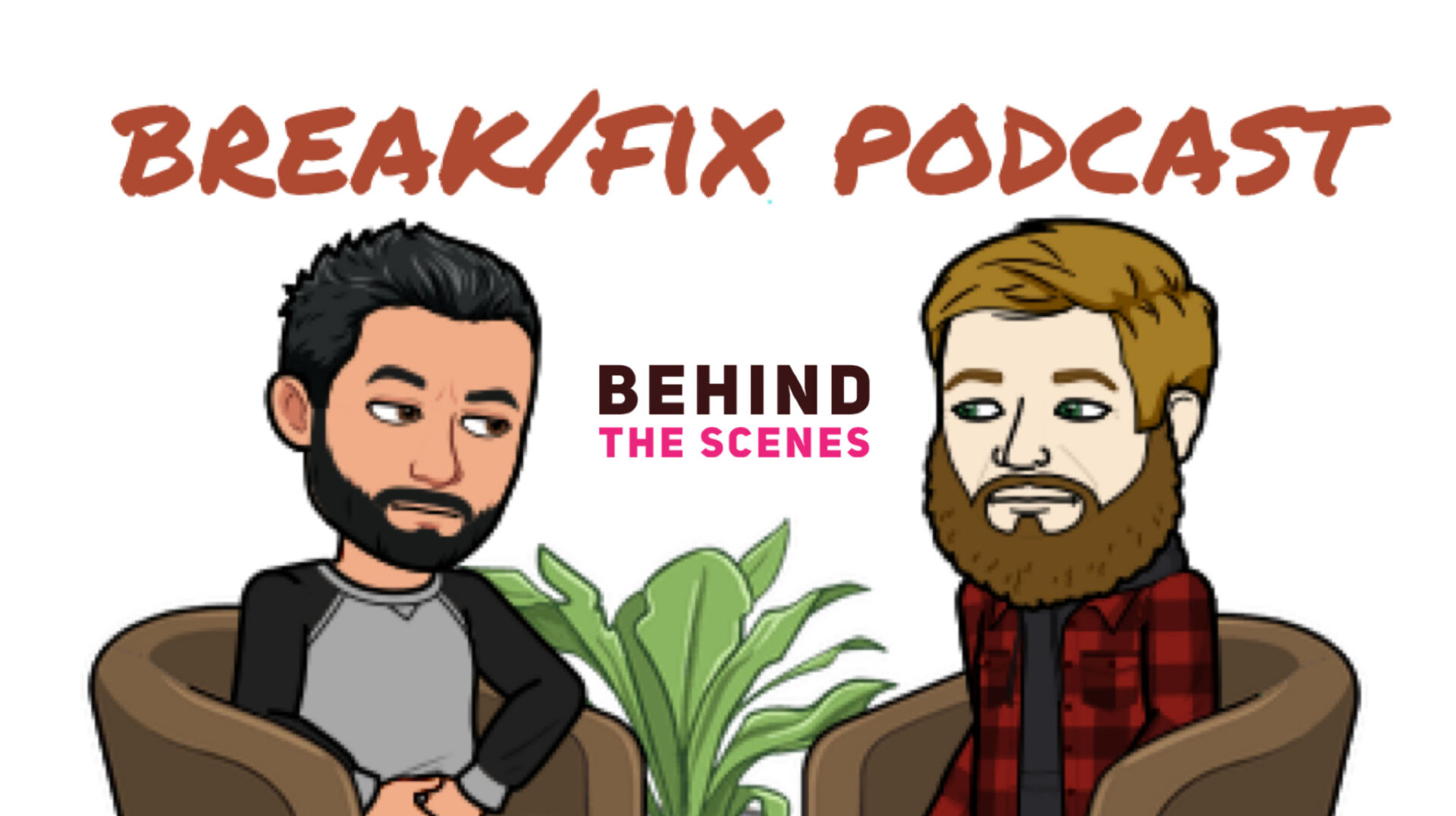
Consider becoming a GTM Patreon Supporter and get behind the scenes content and schwag!
Do you like what you've seen, heard and read? - Don't forget, GTM is fueled by volunteers and remains a no-annual-fee organization, but we still need help to pay to keep the lights on... For as little as $2.50/month you can help us keep the momentum going so we can continue to record, write, edit and broadcast your favorite content. Support GTM today! or make a One Time Donation.
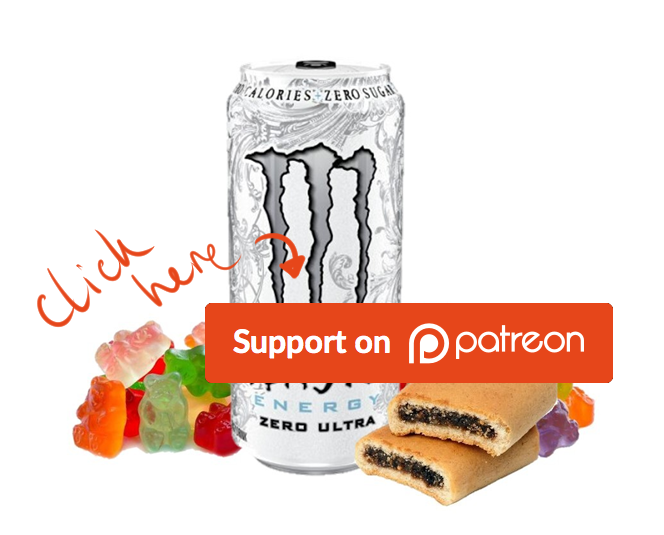
If you enjoyed this episode, please go to Apple Podcasts and leave us a review. That would help us beat the algorithms and help spread the enthusiasm to others by way of Break/Fix and GTM. Subscribe to Break/Fix using your favorite Podcast App:
 |  |  |
There's more to this story!
Be sure to check out the behind the scenes for this episode, filled with extras, bloopers, and other great moments not found in the final version. Become a Break/Fix VIP today by joining our Patreon.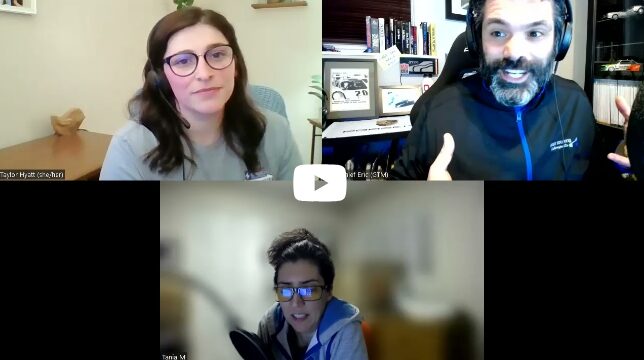
All of our BEHIND THE SCENES (BTS) Break/Fix episodes are raw and unedited, and expressly shared with the permission and consent of our guests.
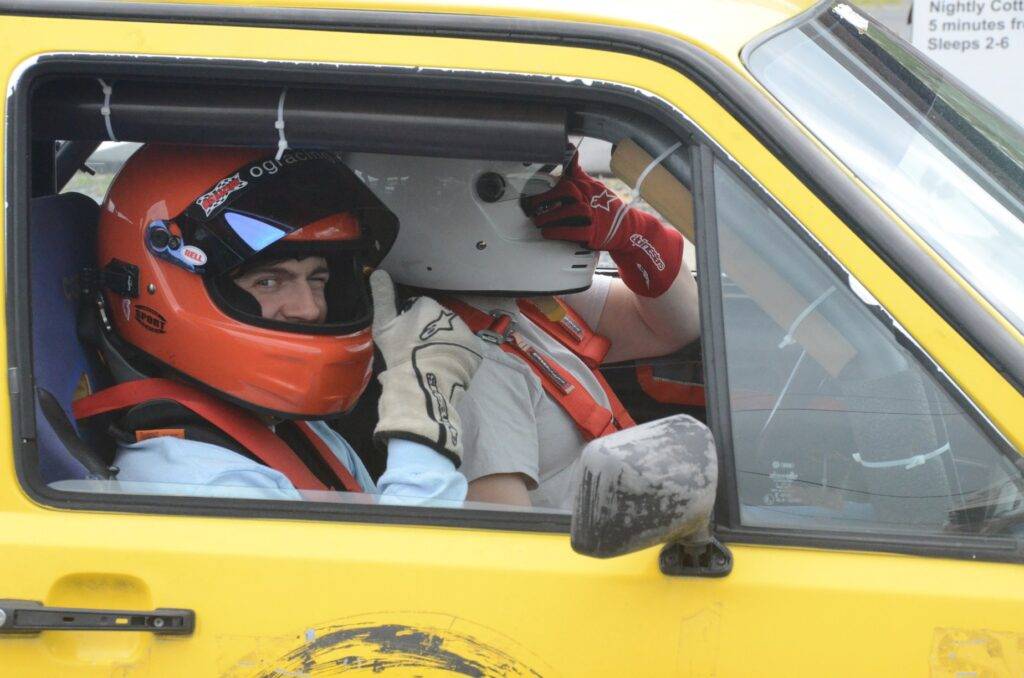
We definitely need to continue to encourage young drivers of all walks of life, and especially the ladies. This helps keep the various disciplines of Motorsports we love in-tact, and growing.
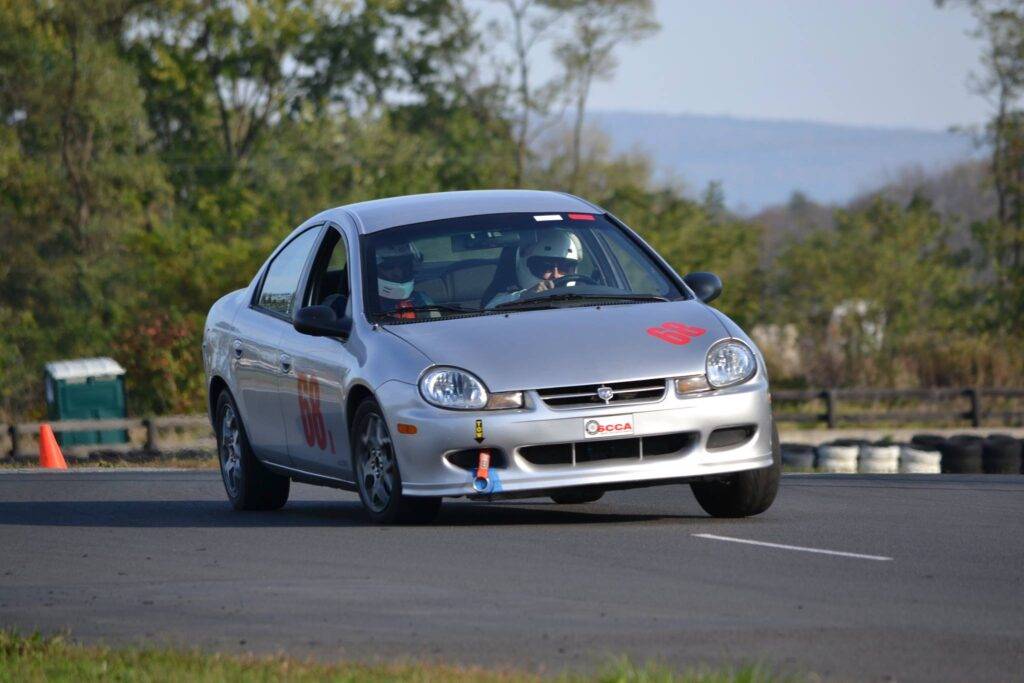
Currently, Taylor’s goal is to build relationships with businesses and products she believes in, in turn helping them to increase exposure and drive sales, all of this while also keeping her race car in tip-top shape to compete at the highest levels.
If you’re interested in sponsoring her or want to follow her progress, find her on instagram @taylor.a.hyatt and on facebook. Be sure to check out other interviews she’s been featured on, such as on the podcast – “Inside the SCCA.”
Big shoutout to OGRacing!
Big shoutout and thank you to OGRacing for their continued support of the WDCR SCCA Club Racing series and supporter of Gran Touring Motorsports. But we also want to thank them for the continued support and sponsorship they give to the racing community, up-and-coming racers and especially our women drivers out on track! Keep up the great work because without you none of this would be possible! For all your safety needs, be sure to check out www.ogracing.com


